The Walalakoo Aboriginal Corporation 2021 MEMEBERS Report was approved at the Walalakoo Aboriginal Corporation ICN: 8041 and Walalakoo Land Holding (AC) ICN: 8620 Annual General Meeting of its Members on the 9th November 2021.
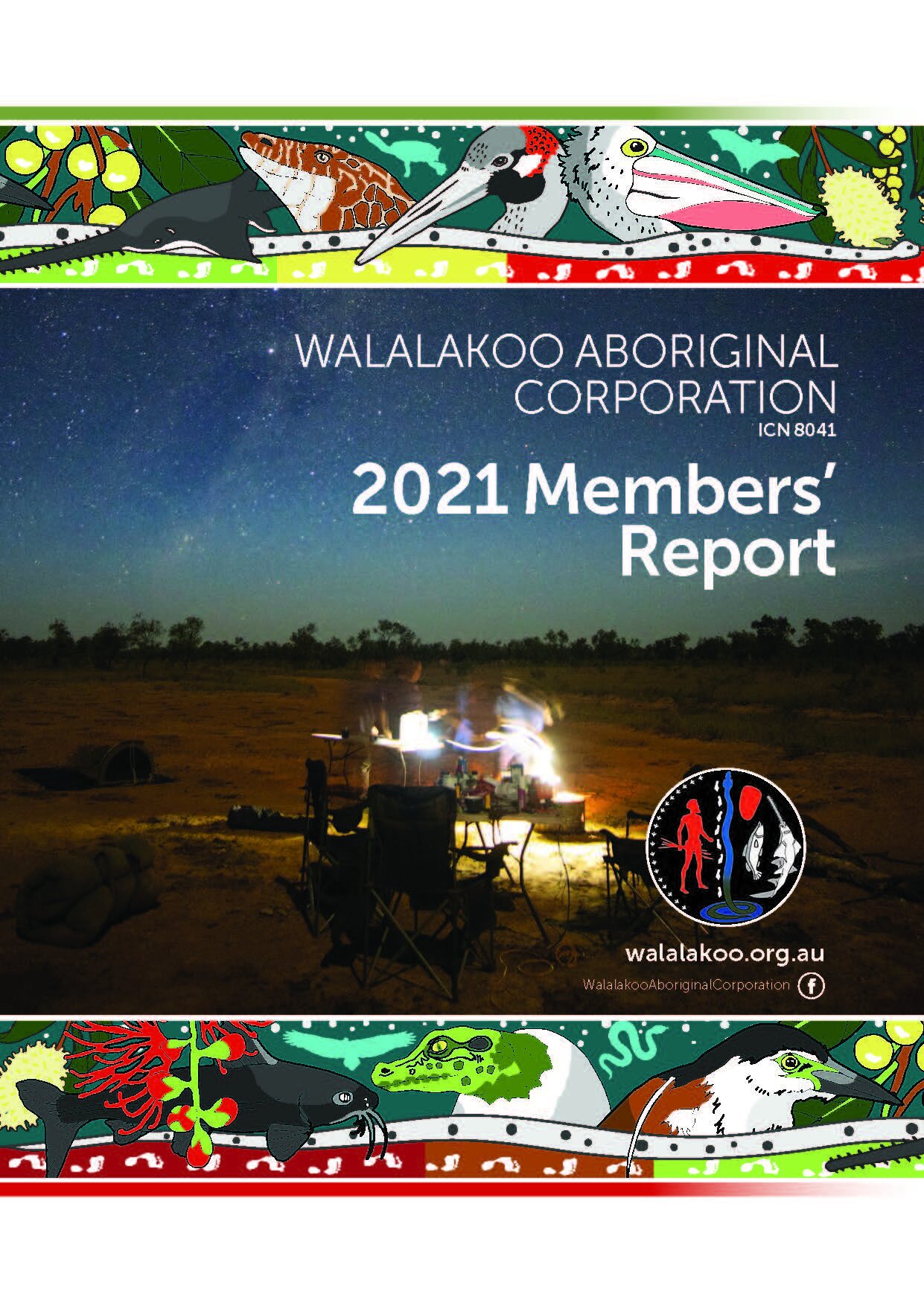
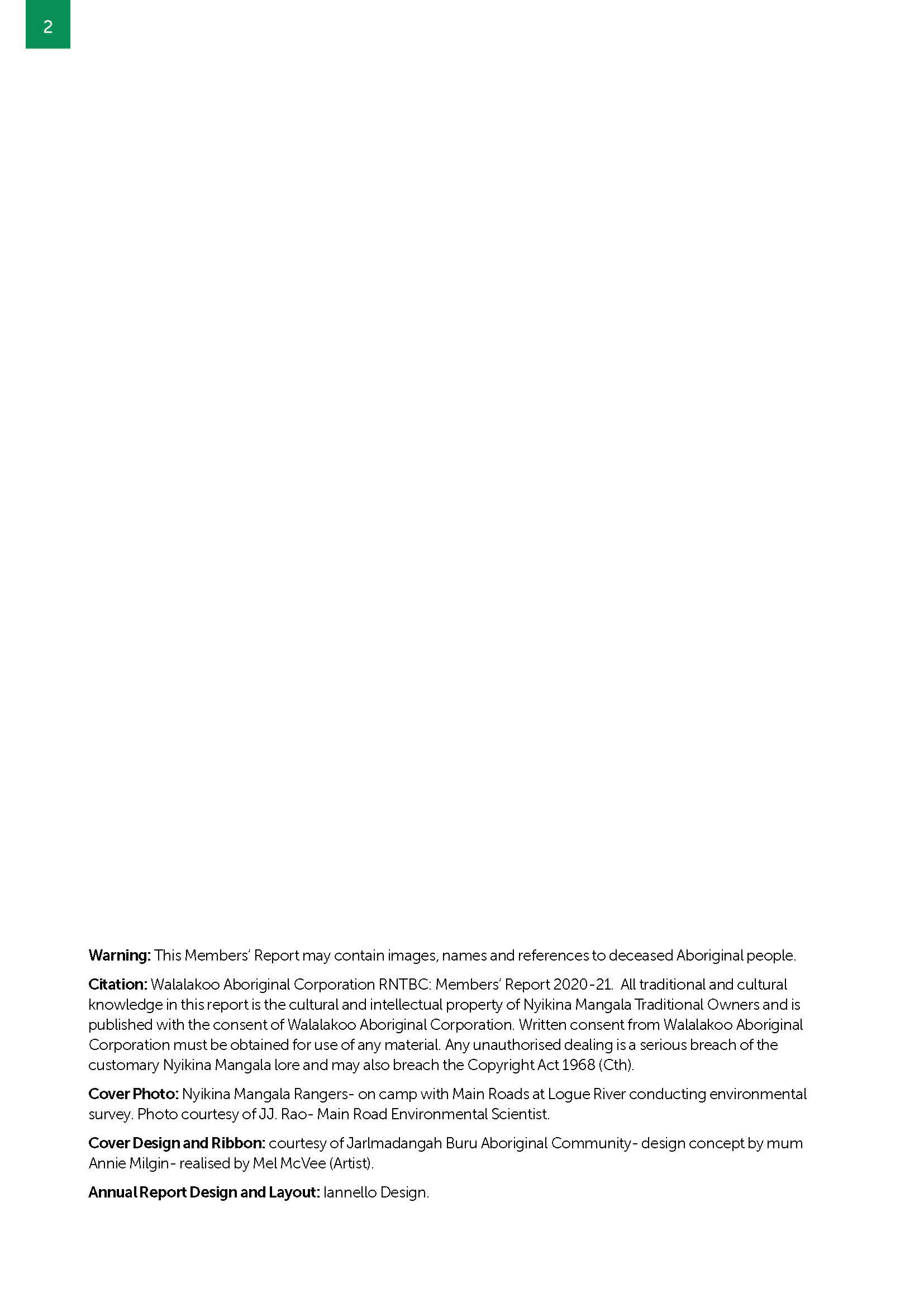
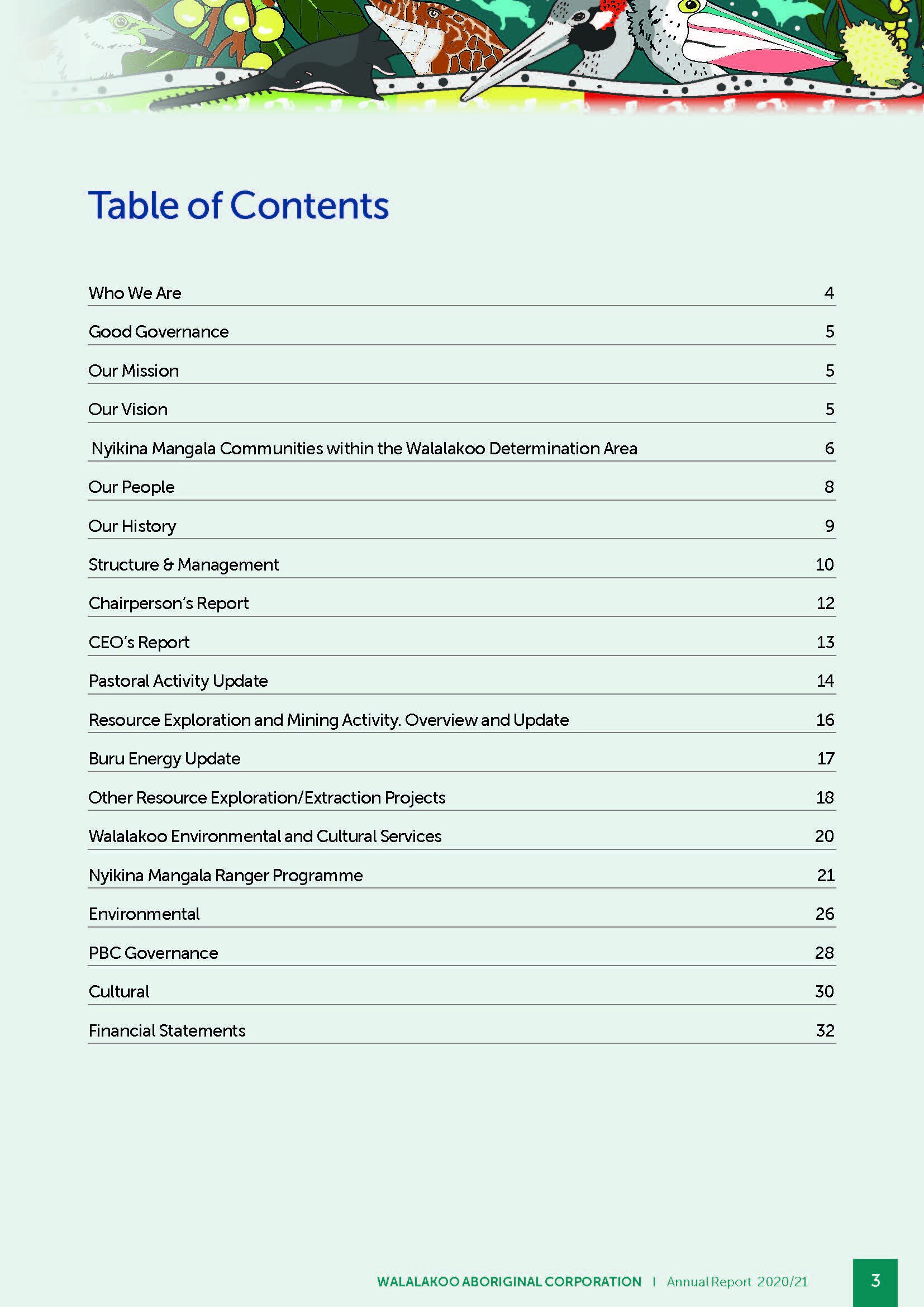
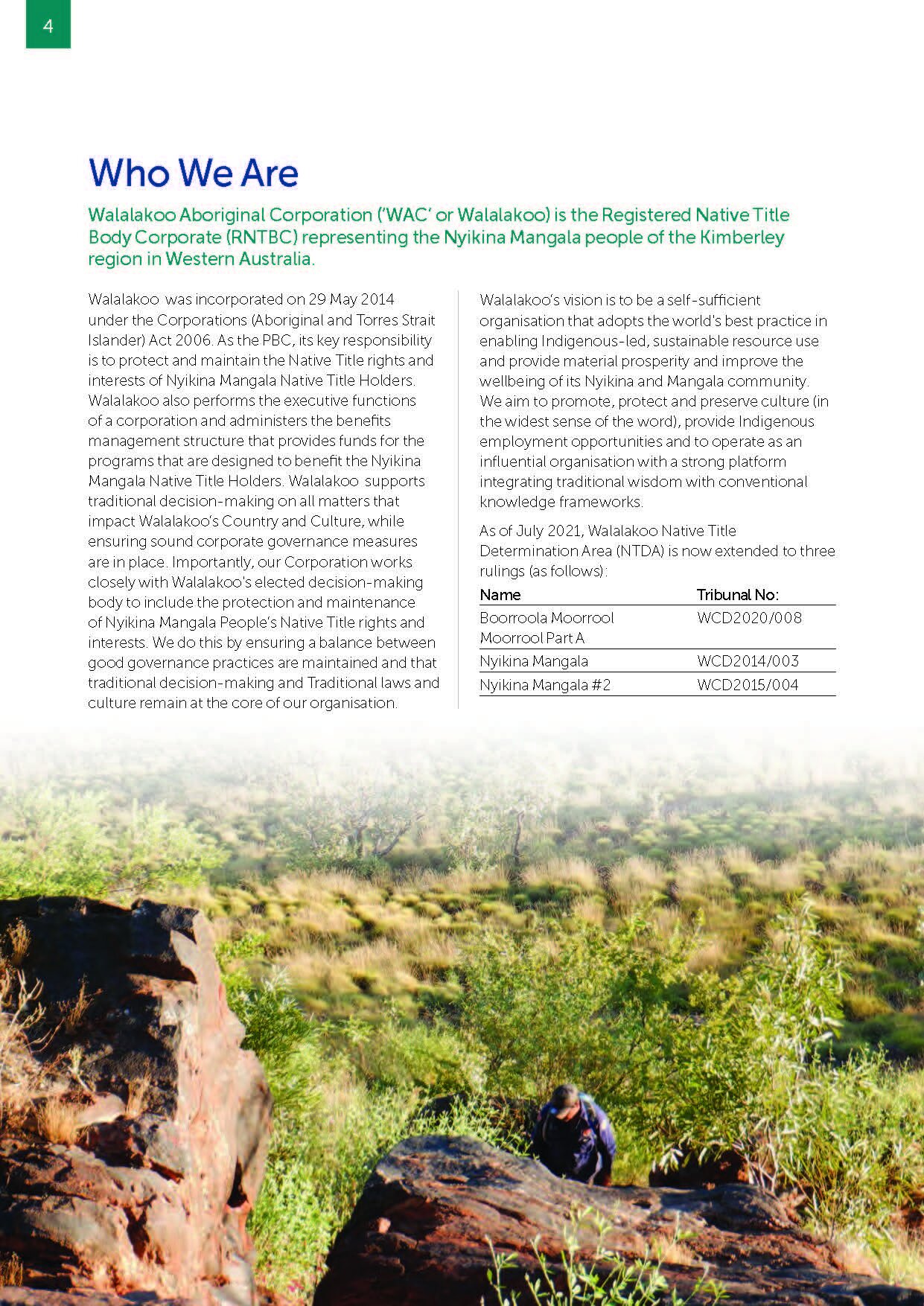
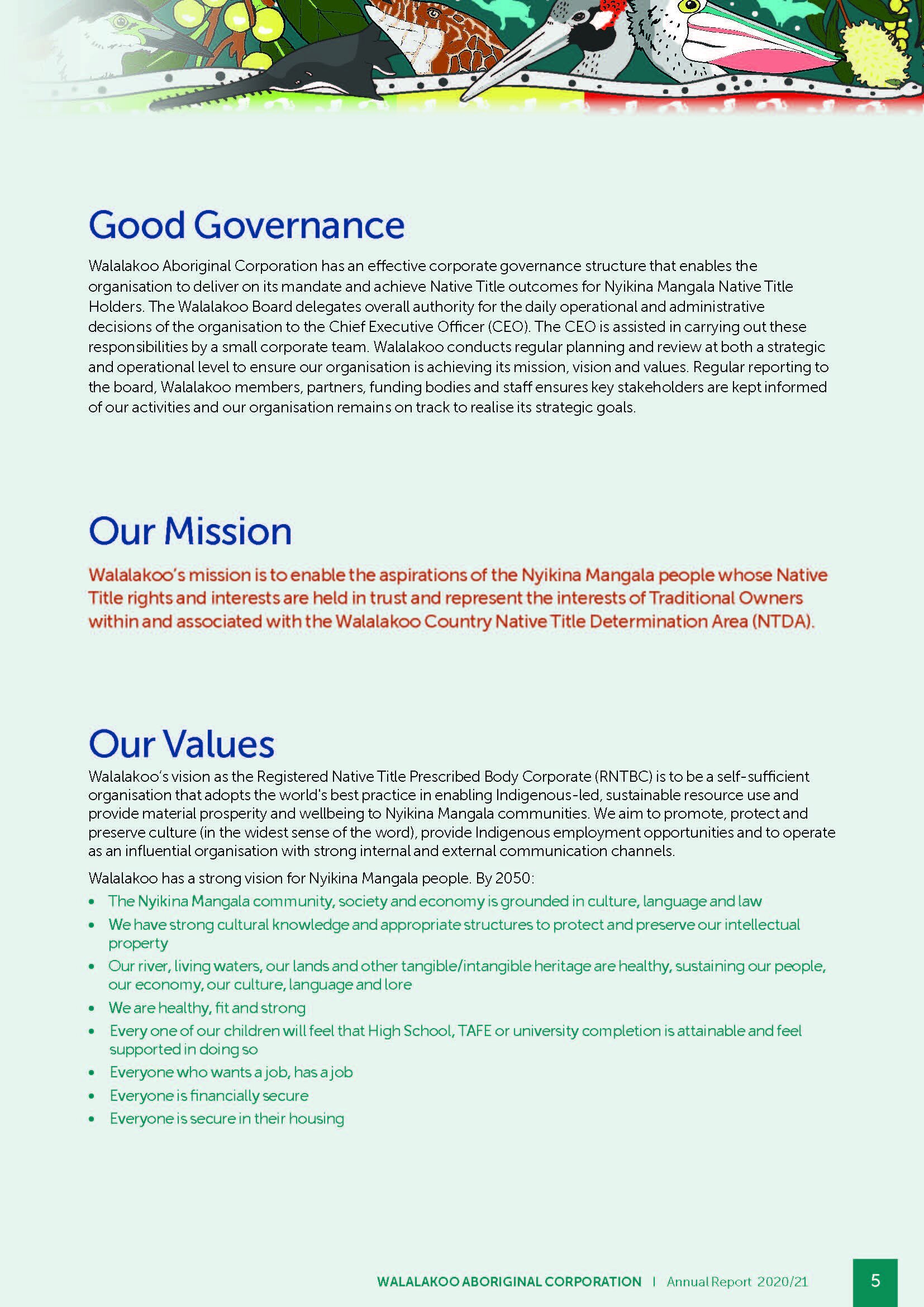
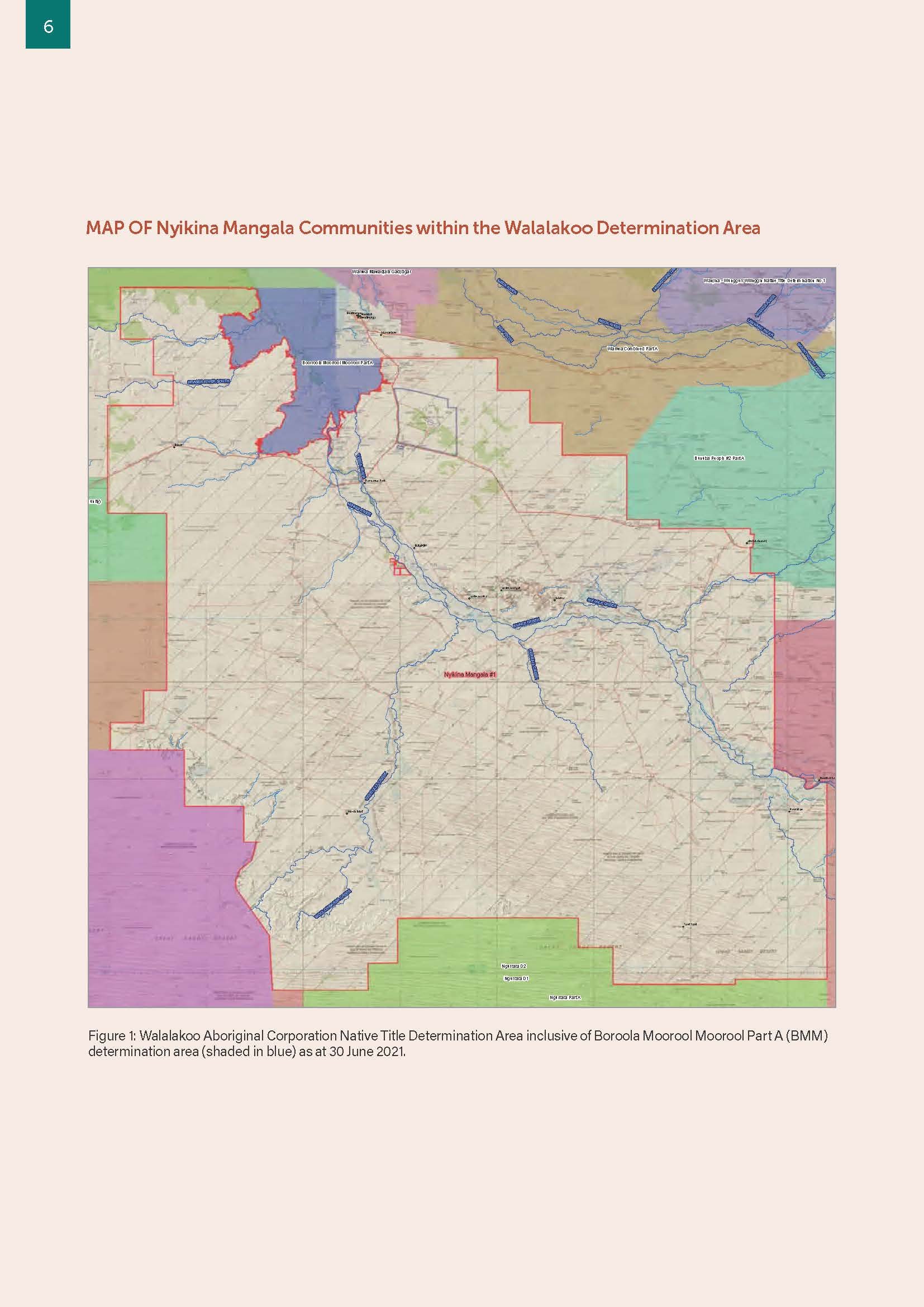

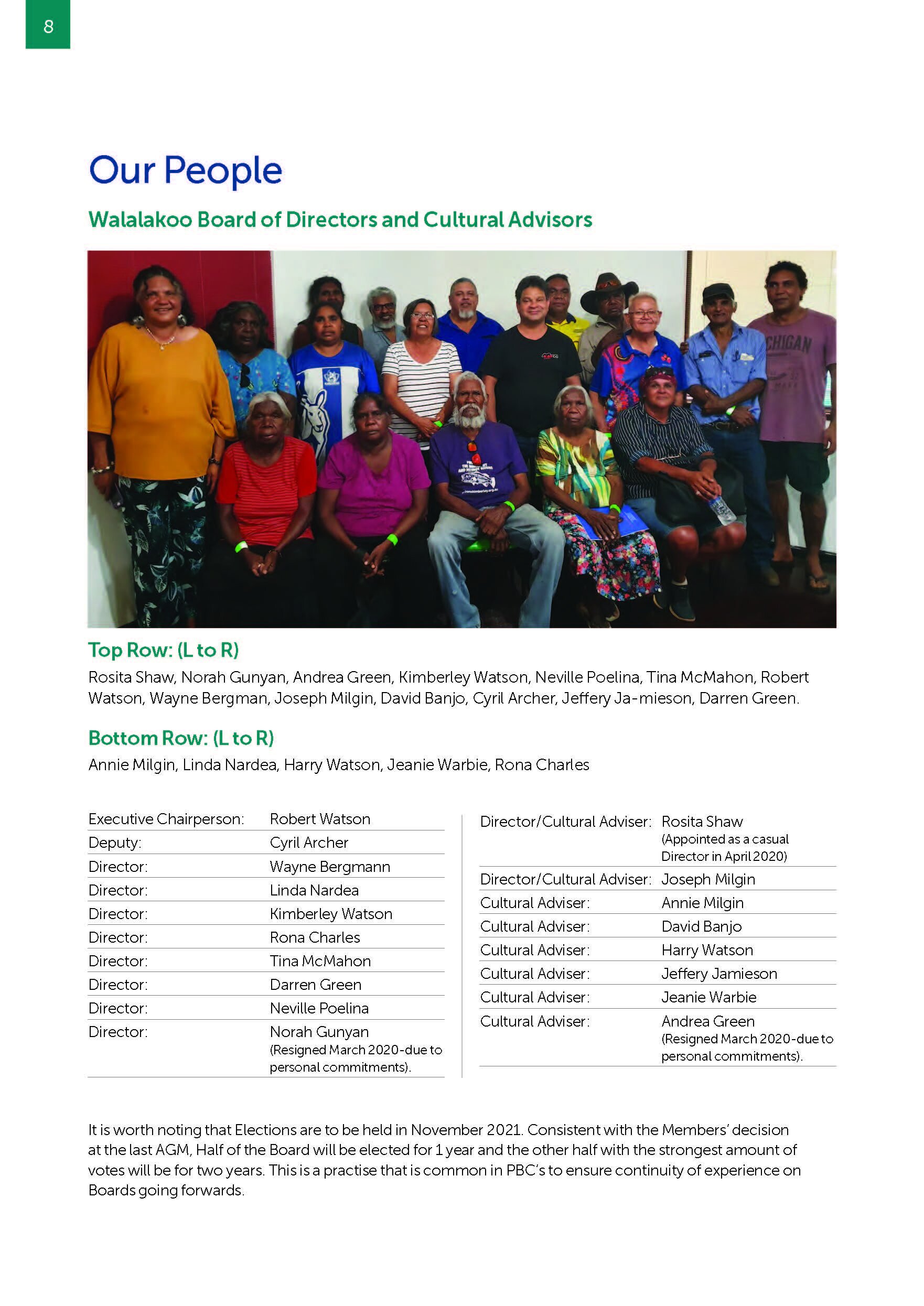
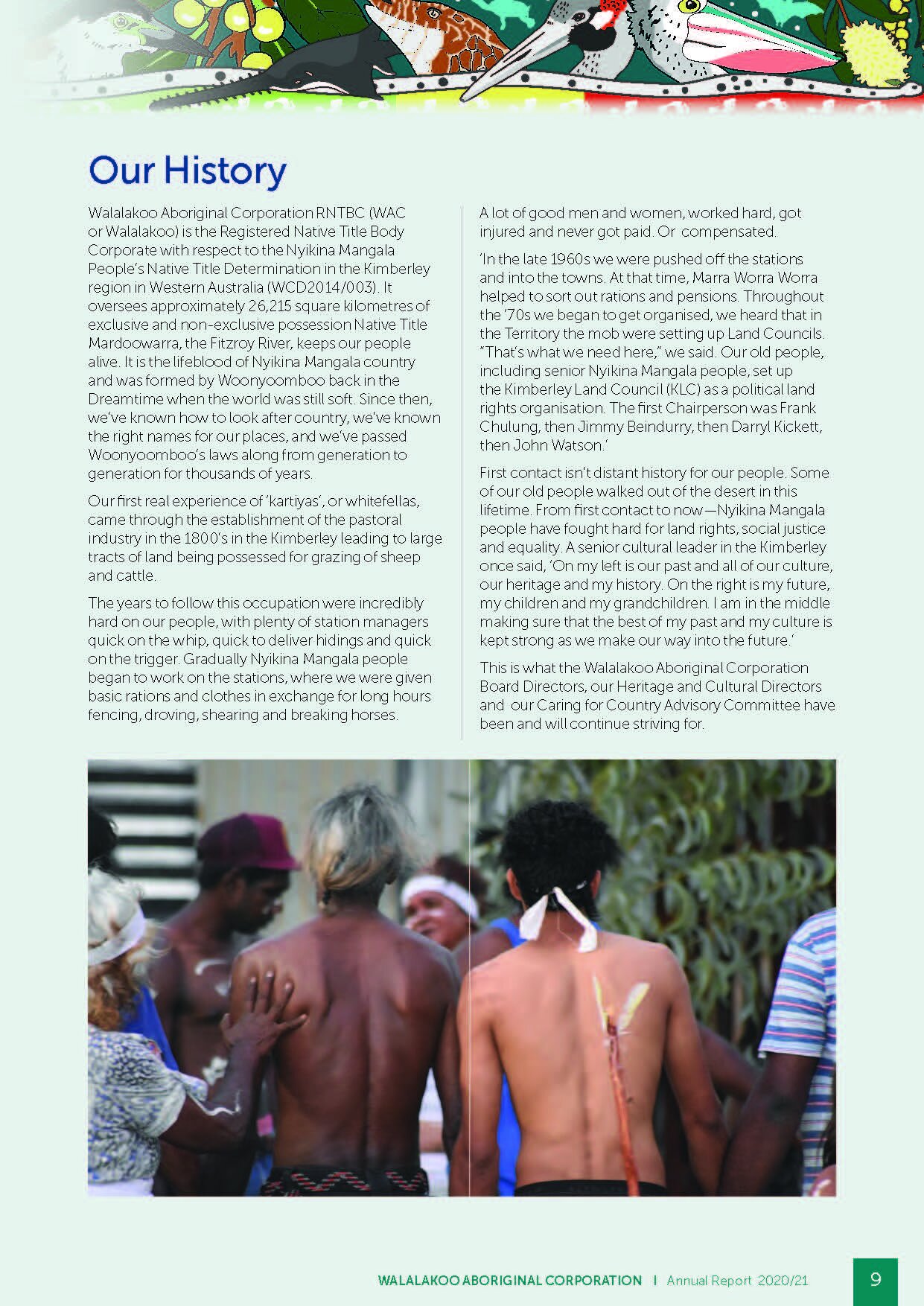
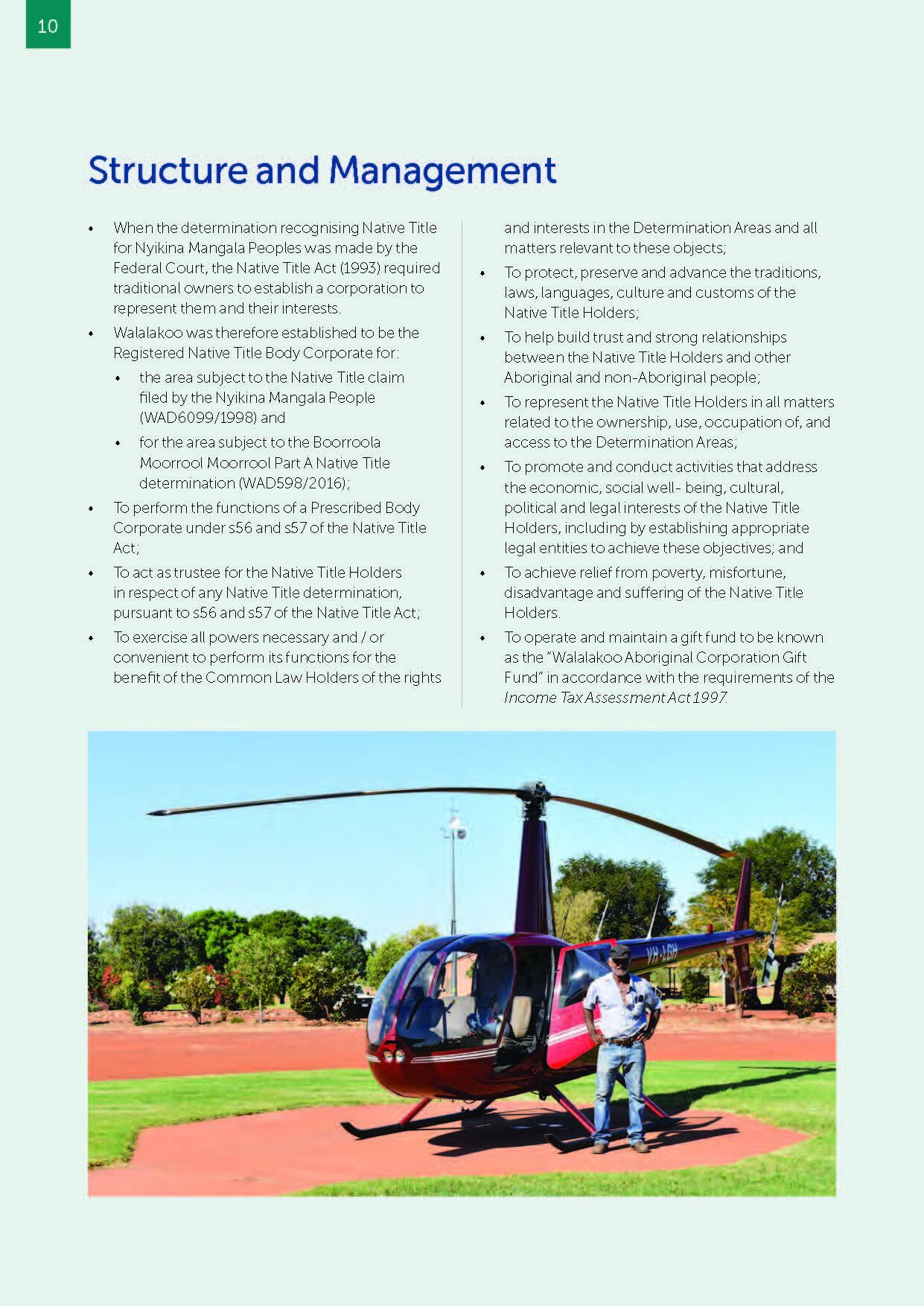
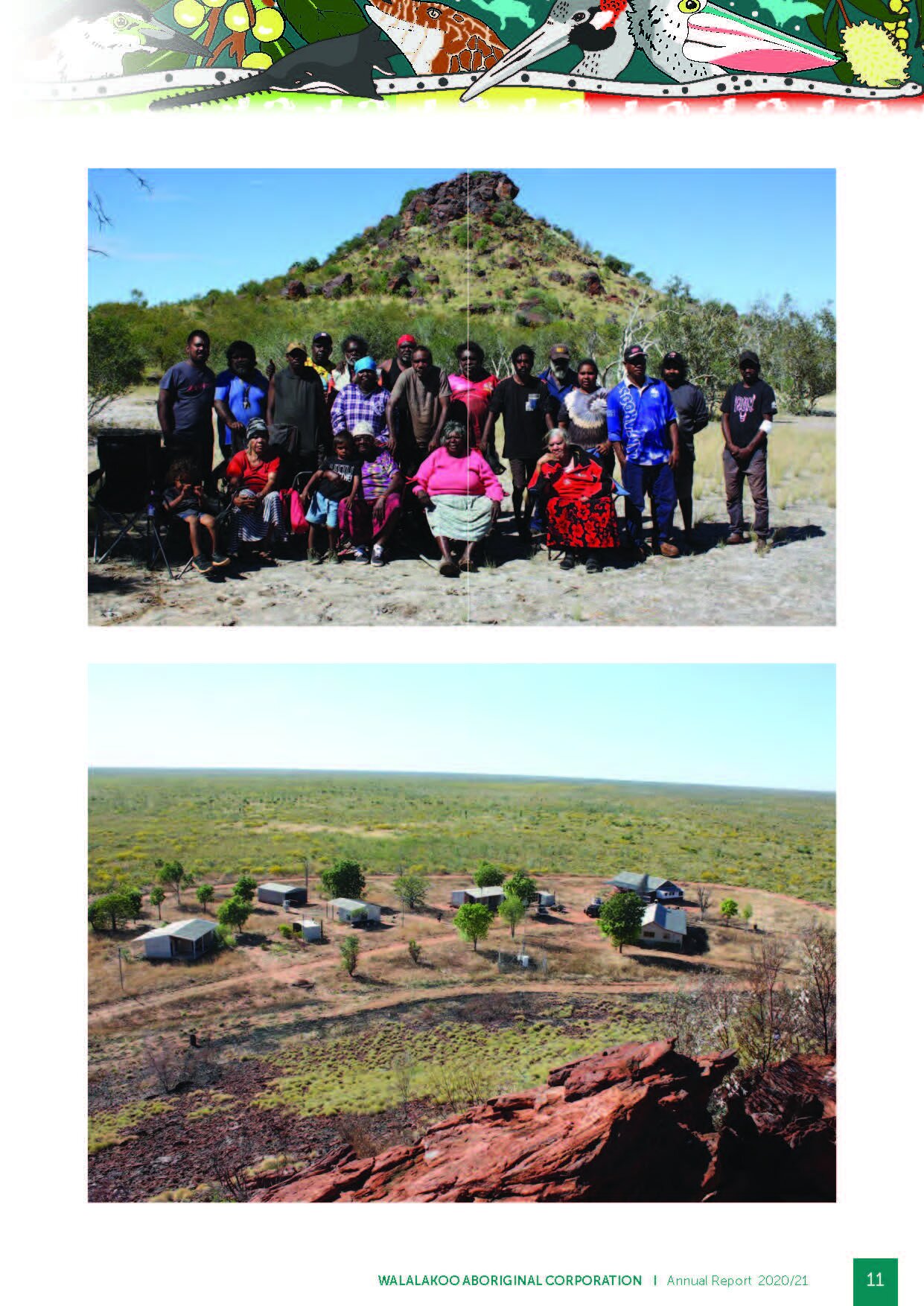
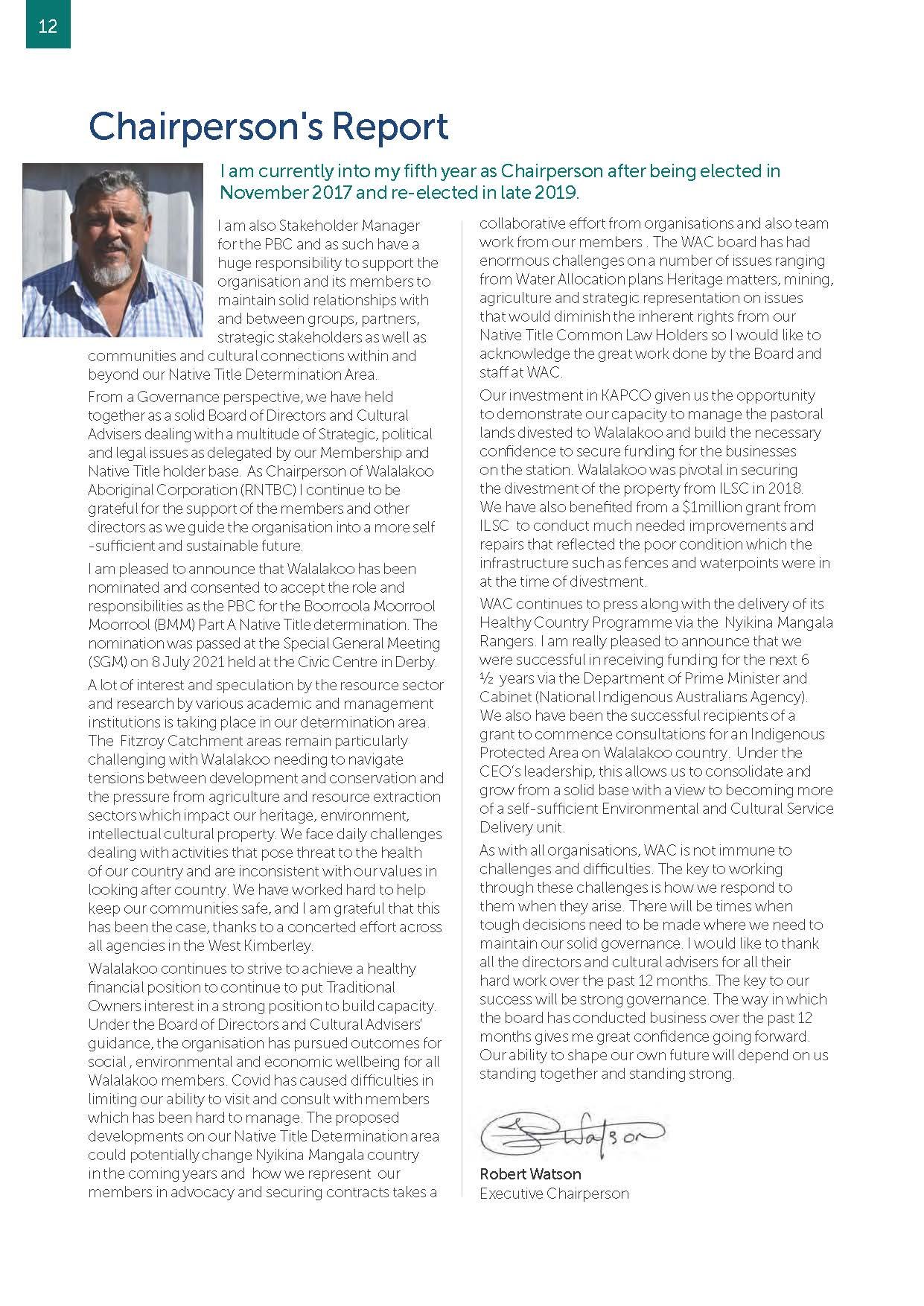
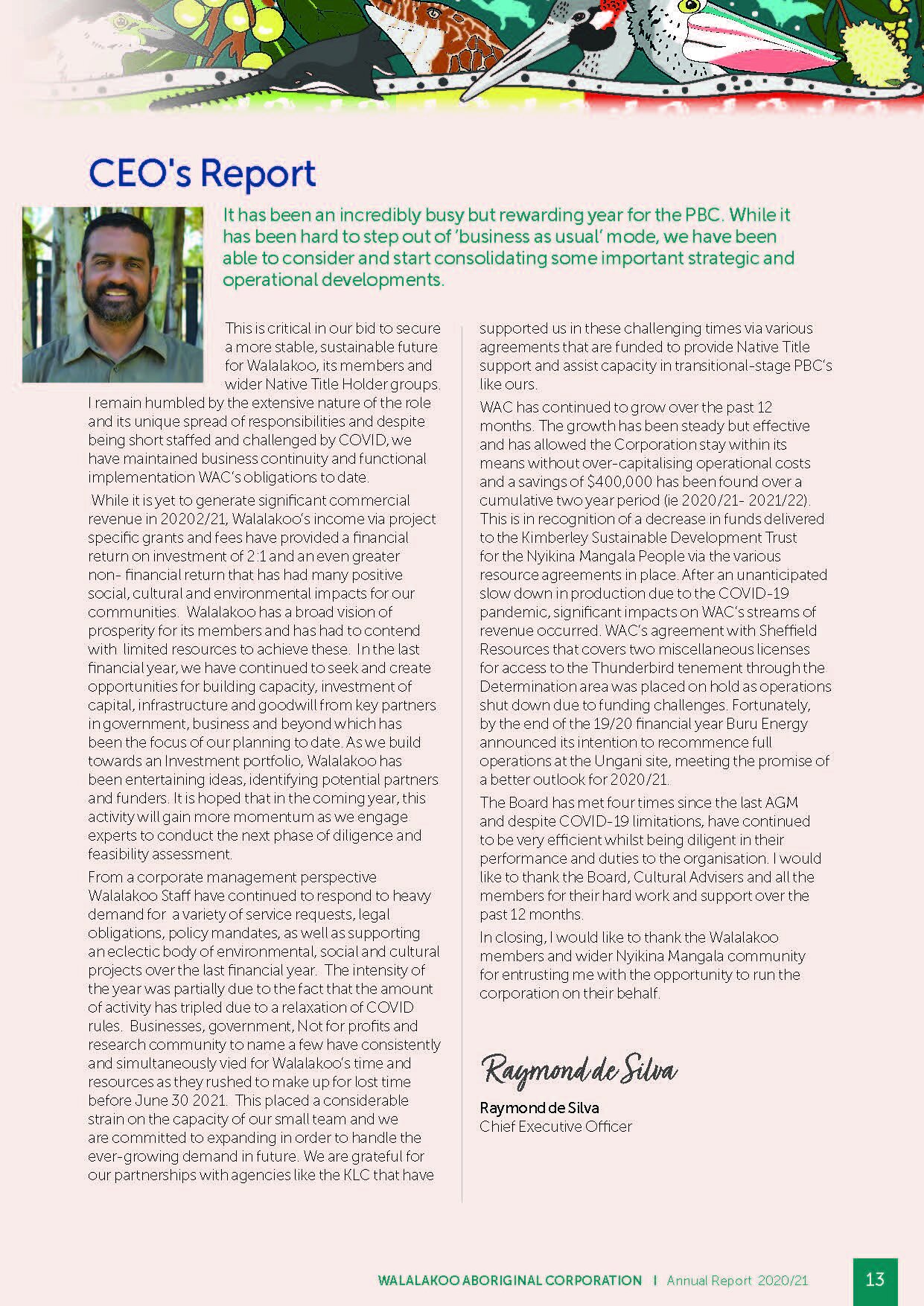
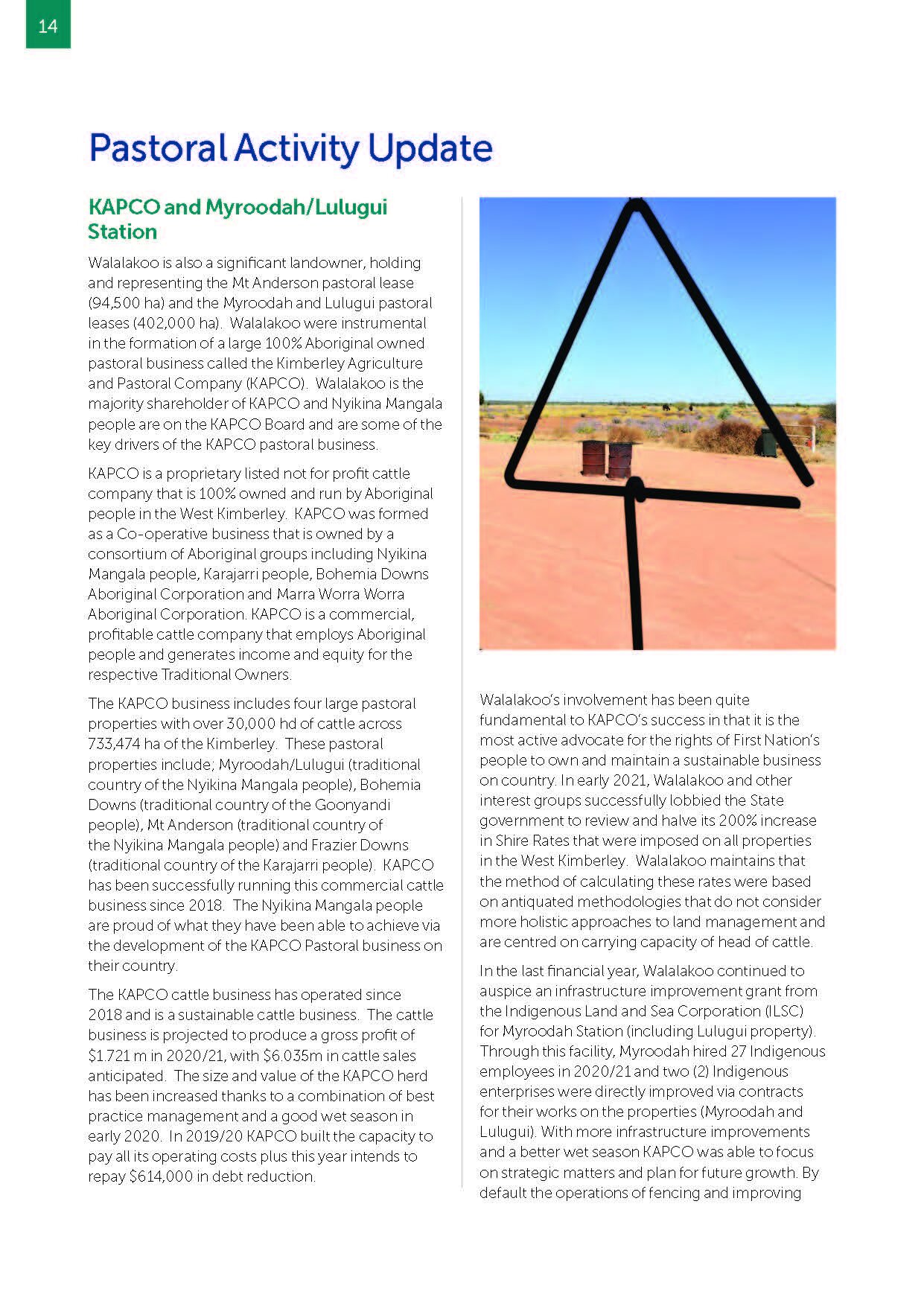

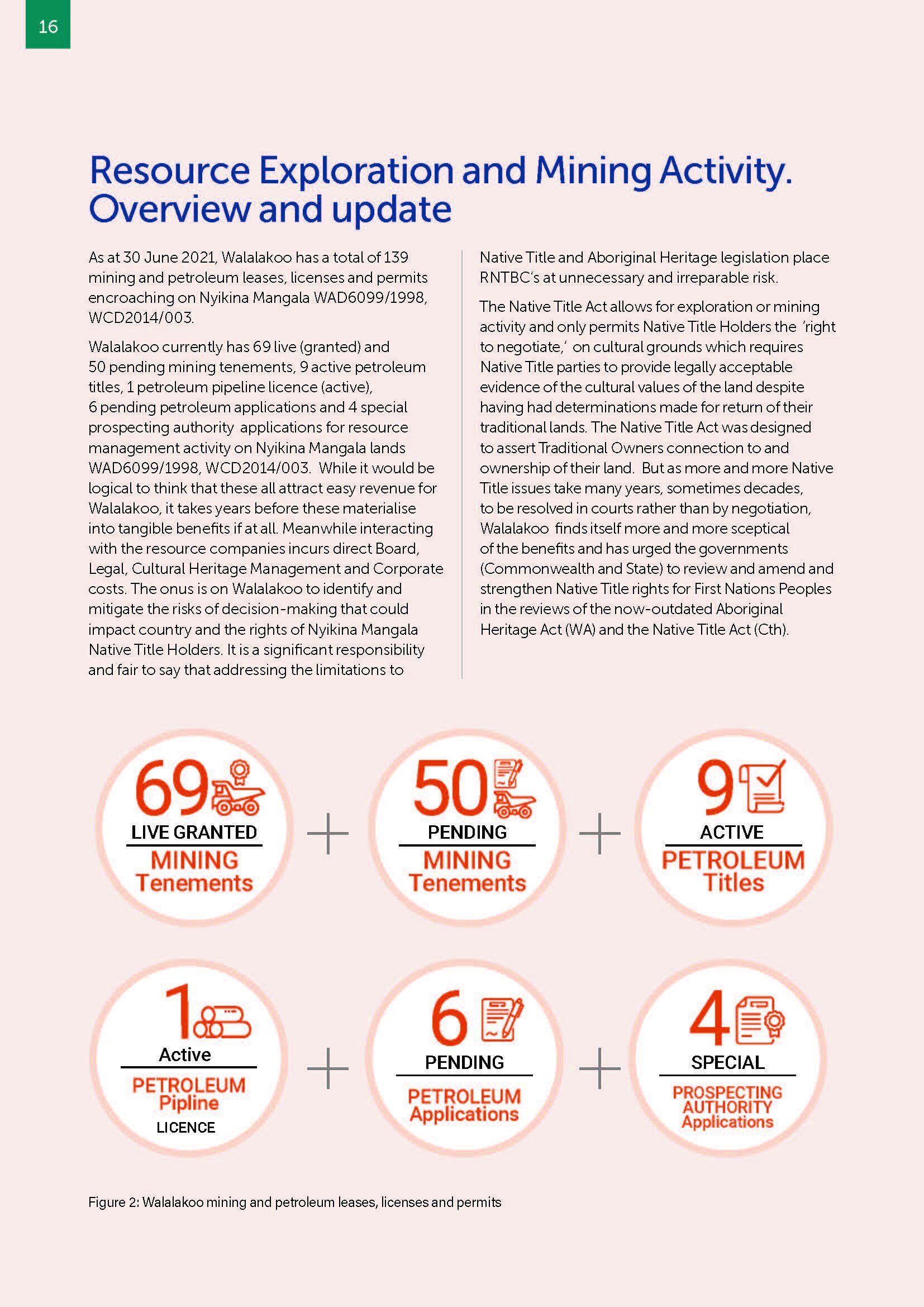
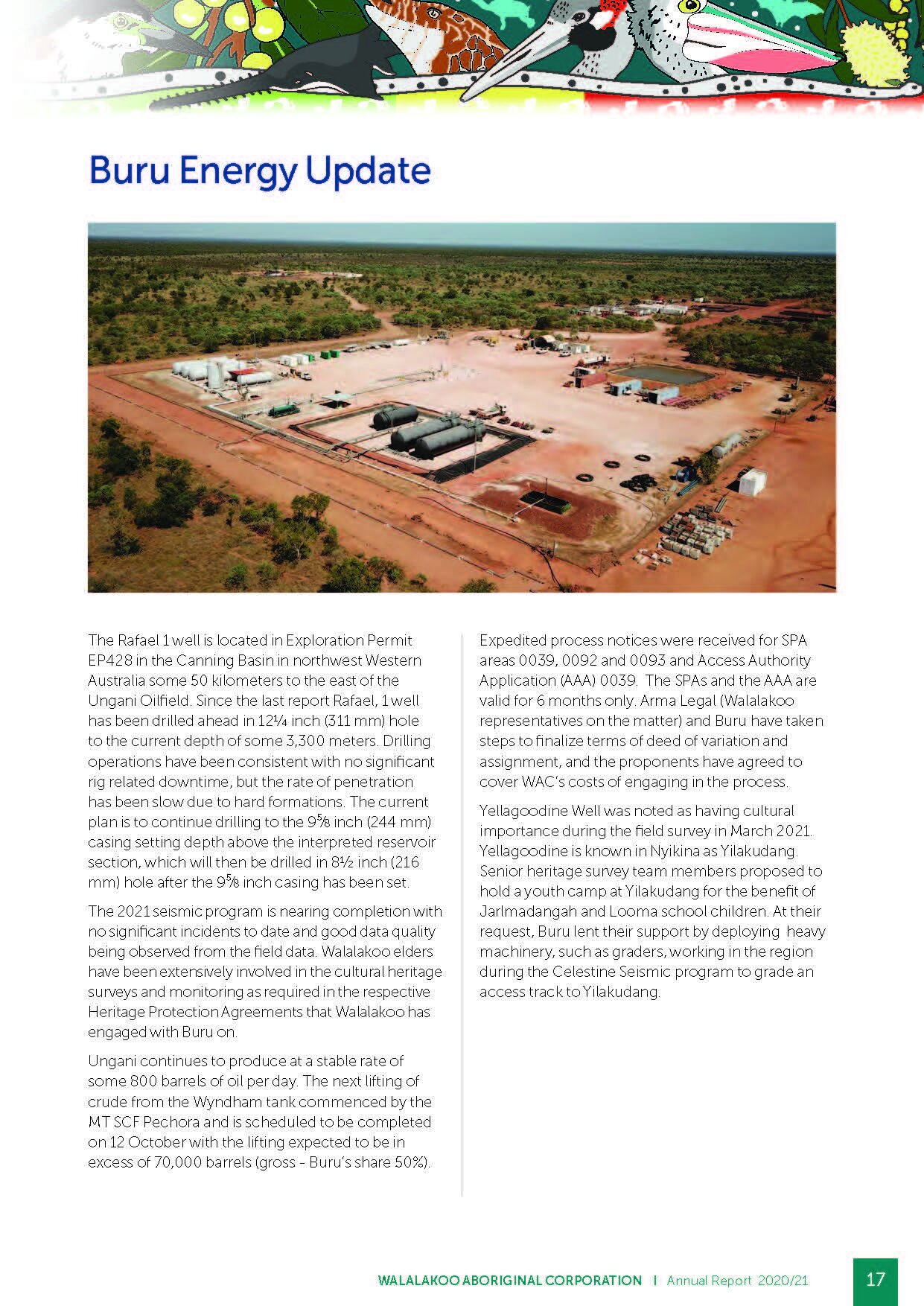
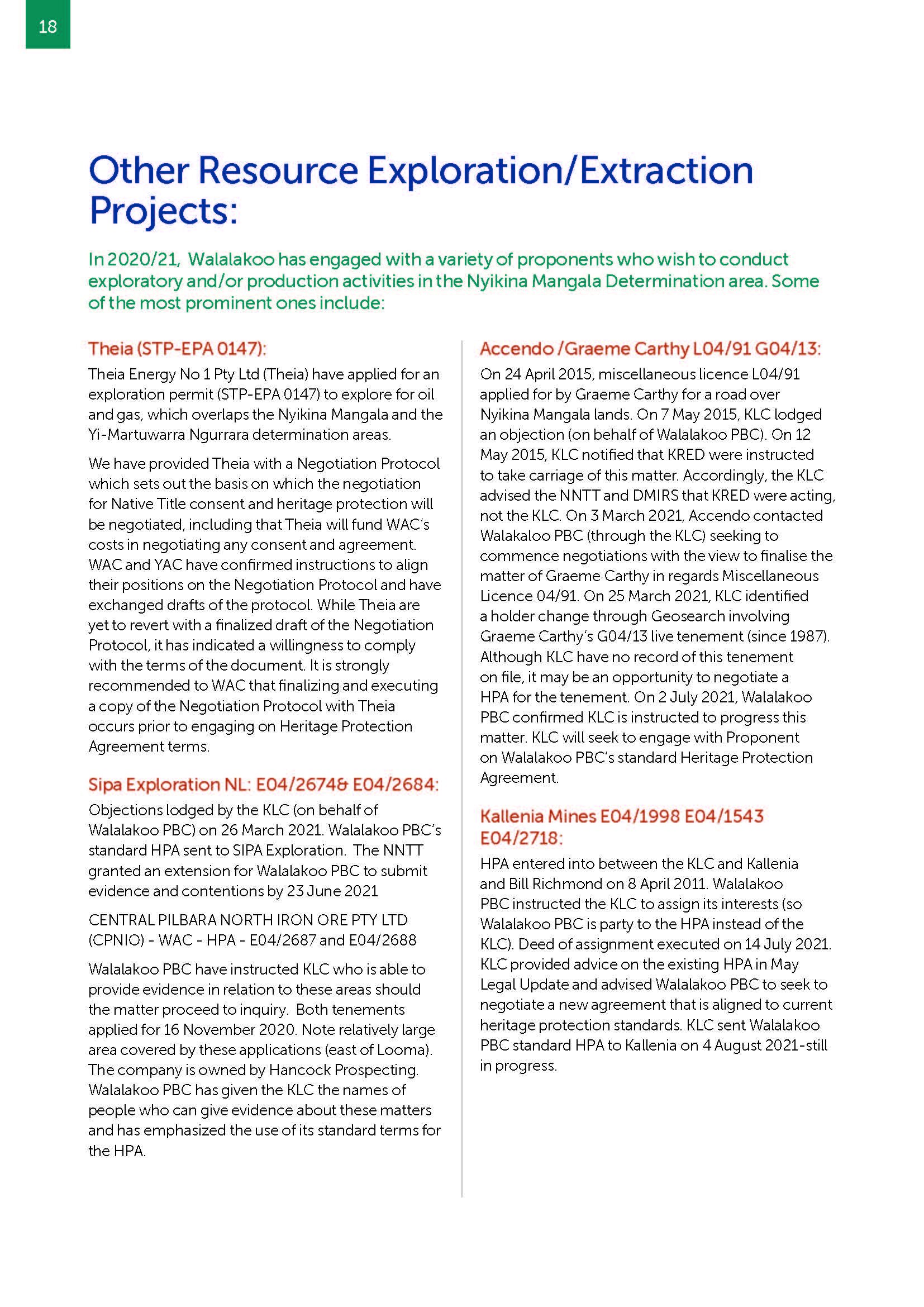
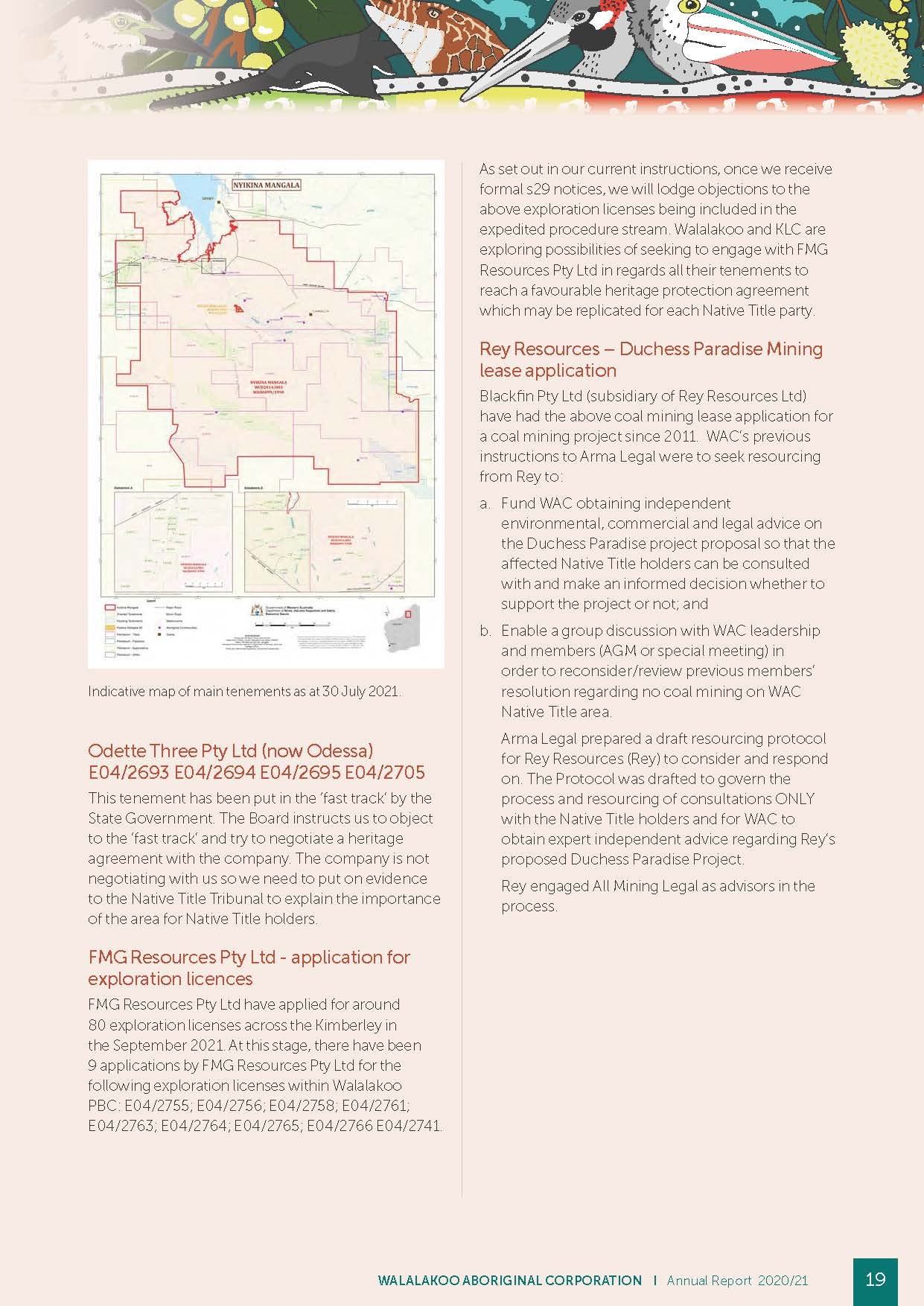
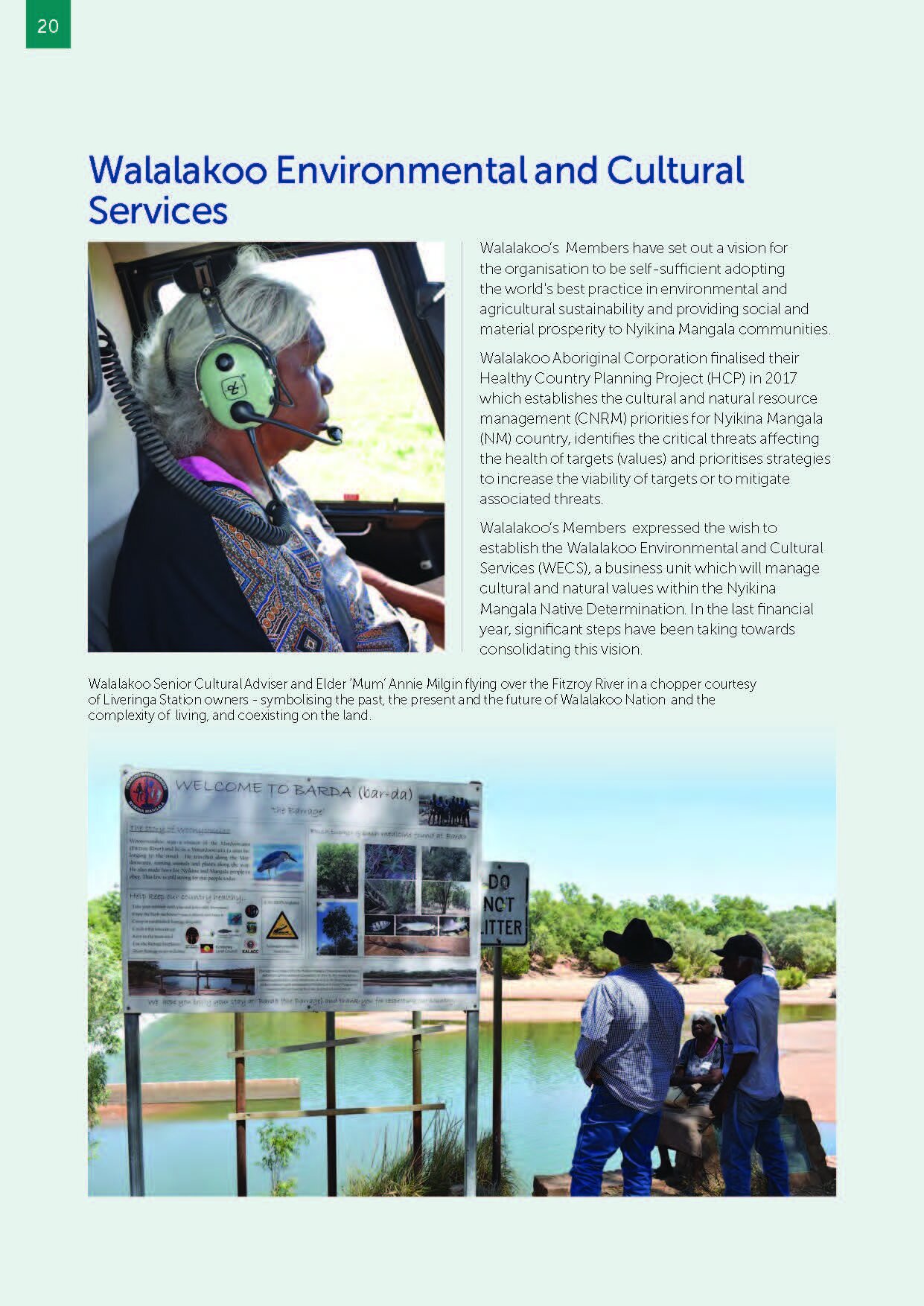

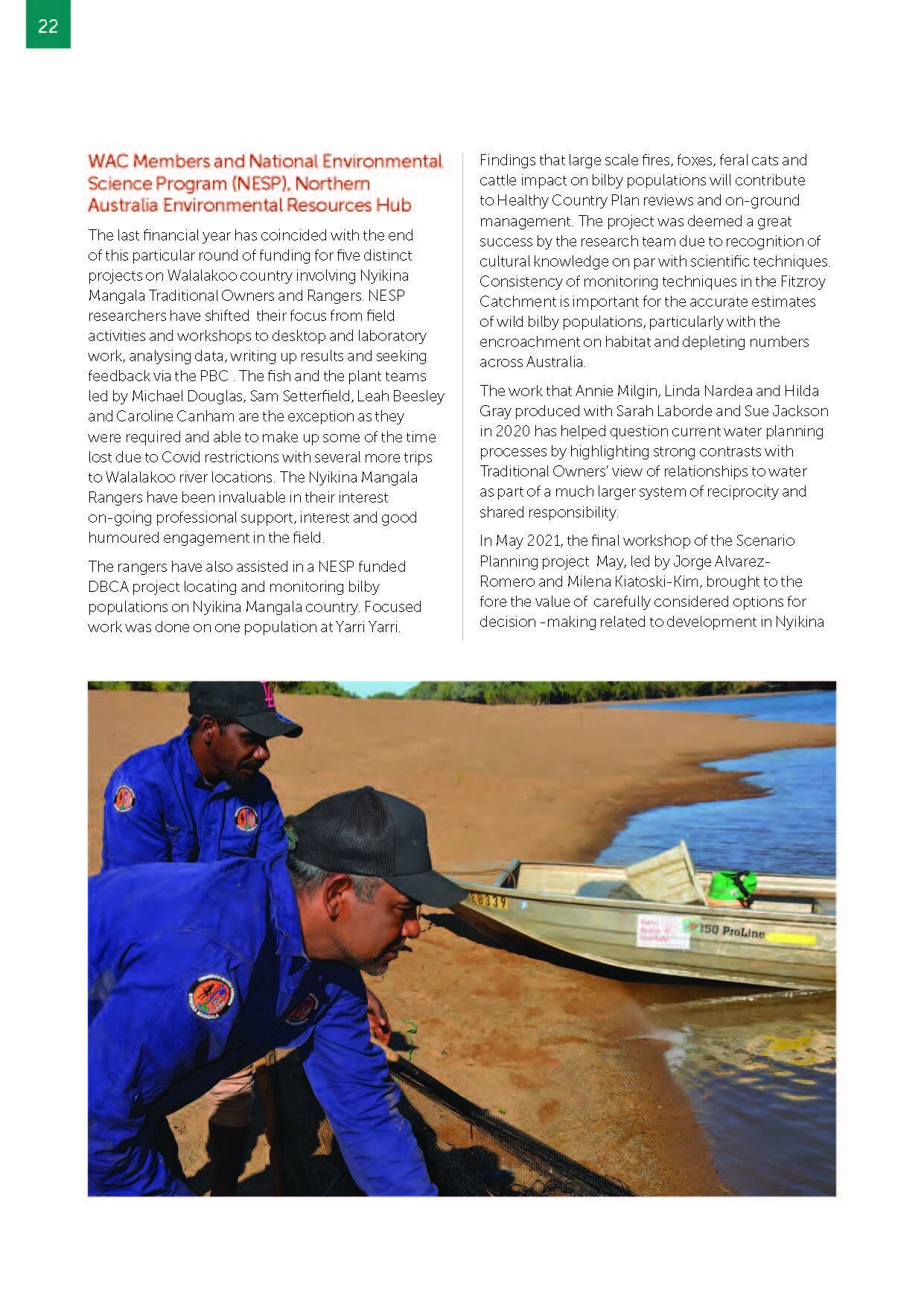
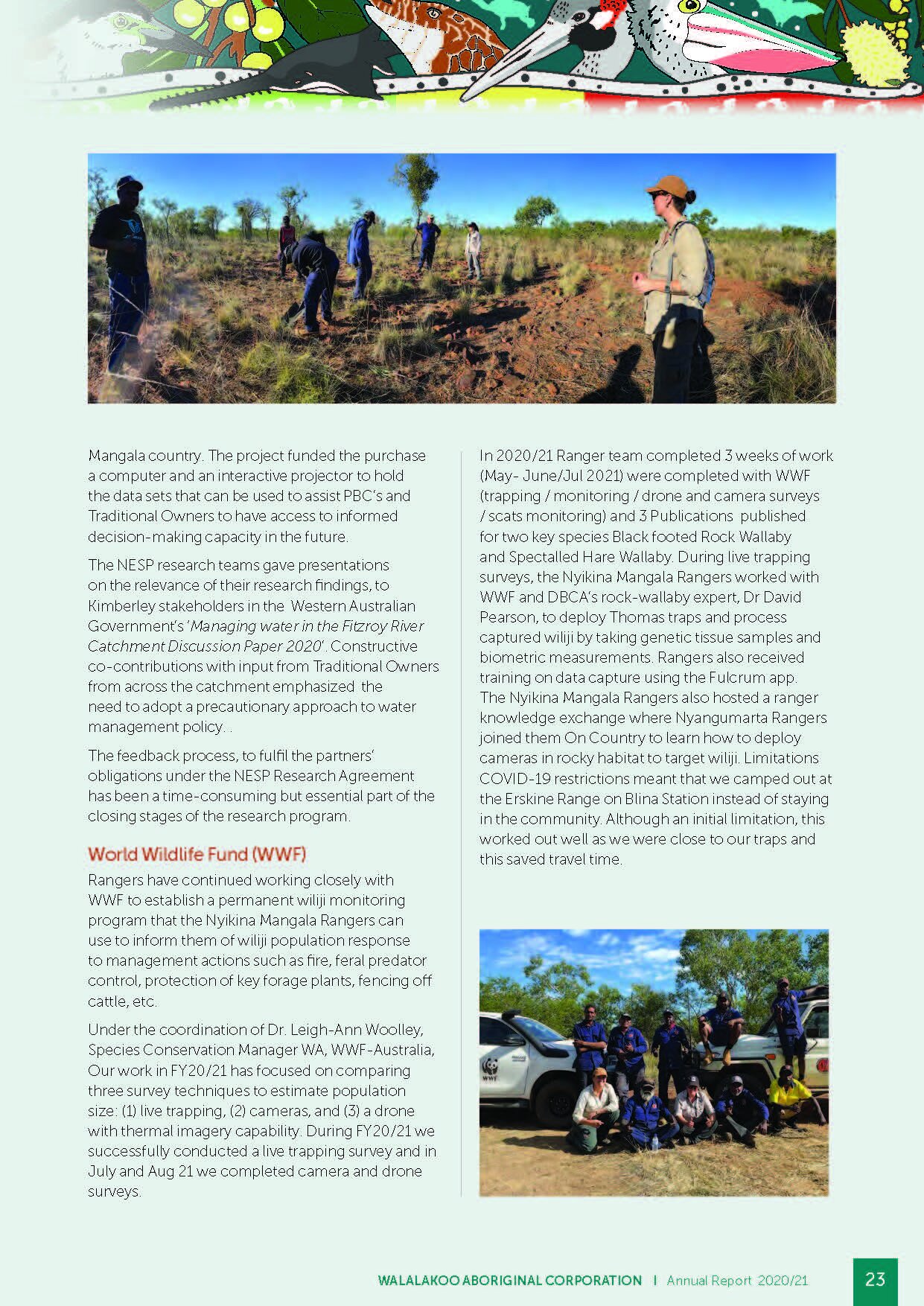
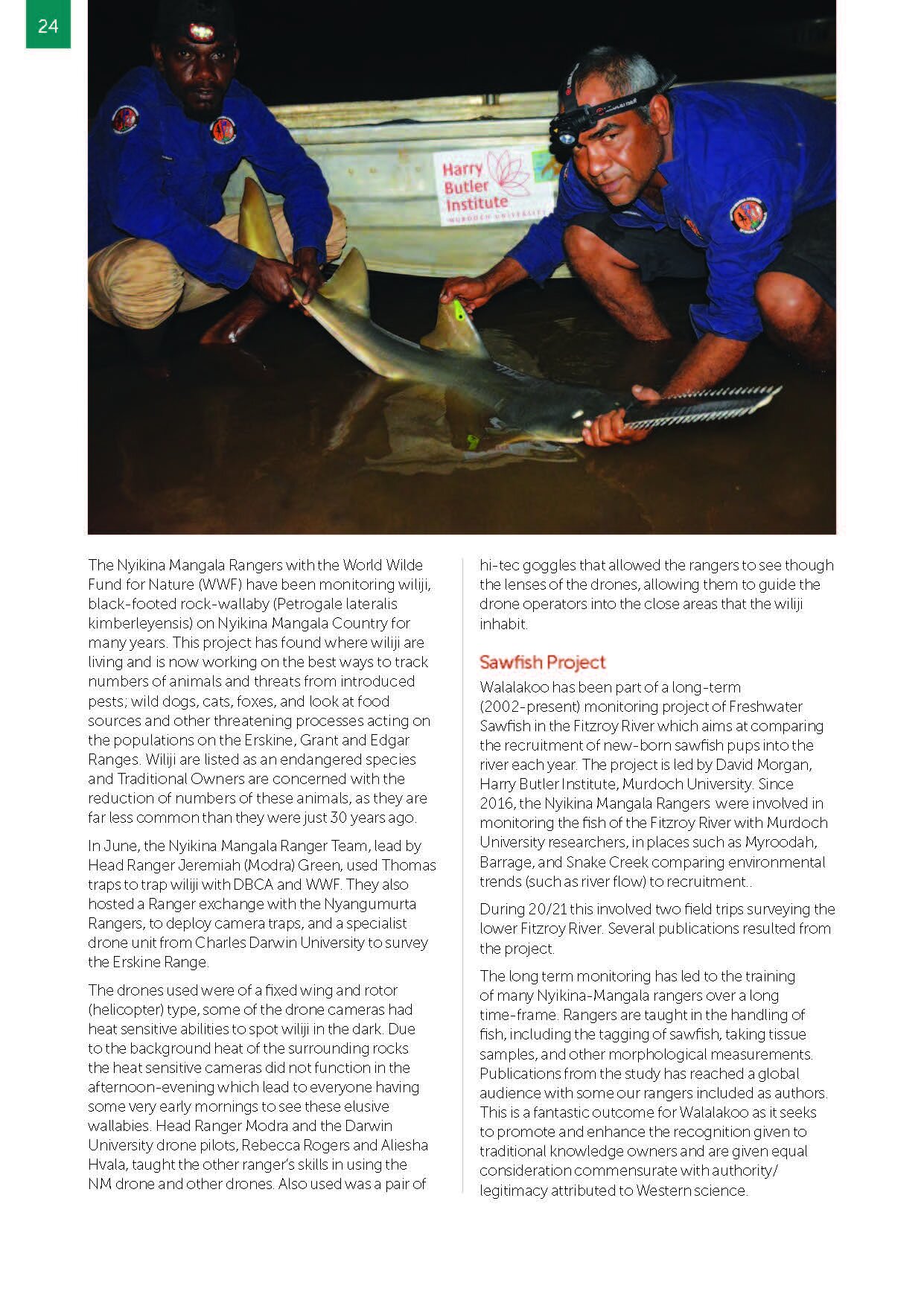
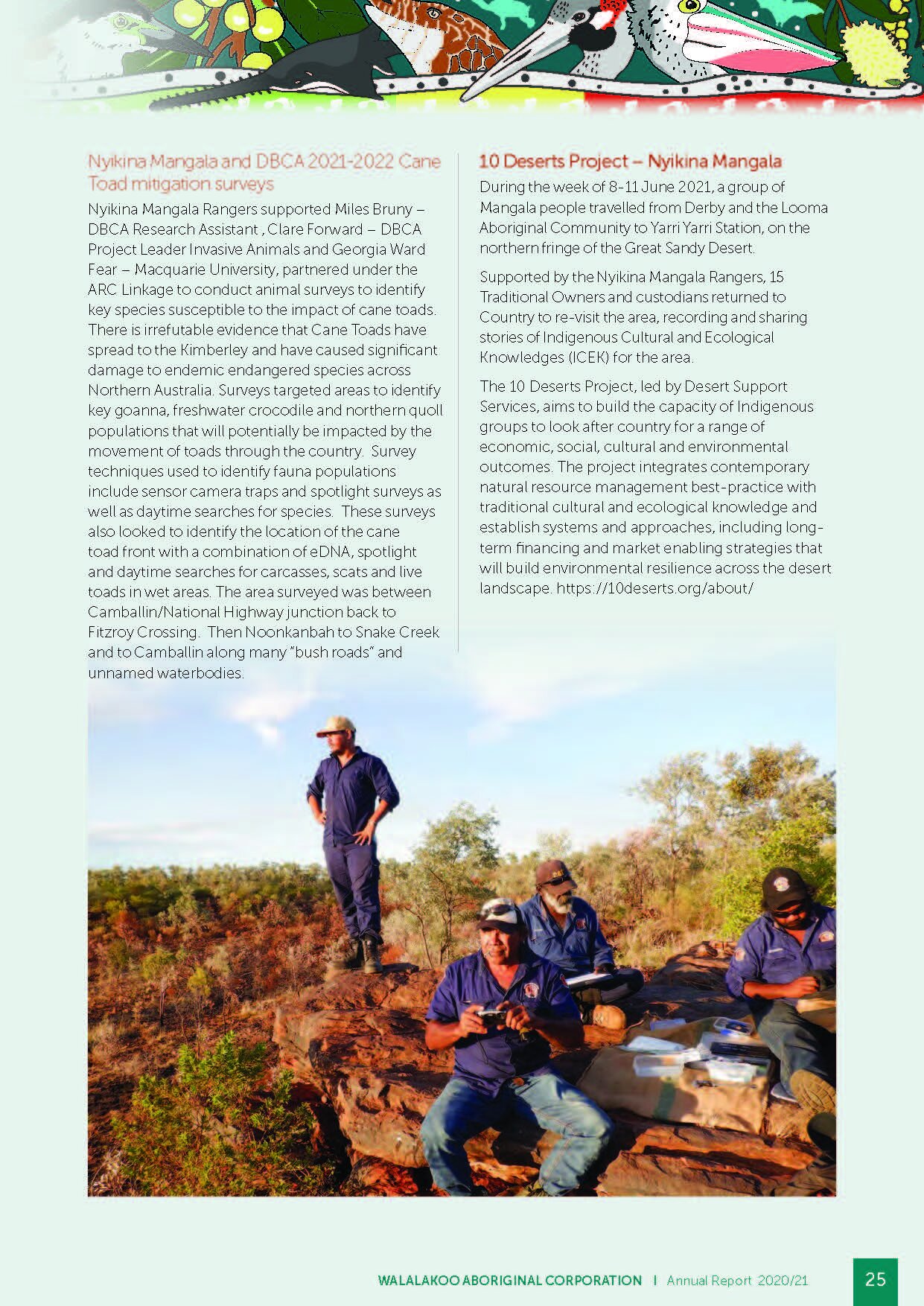

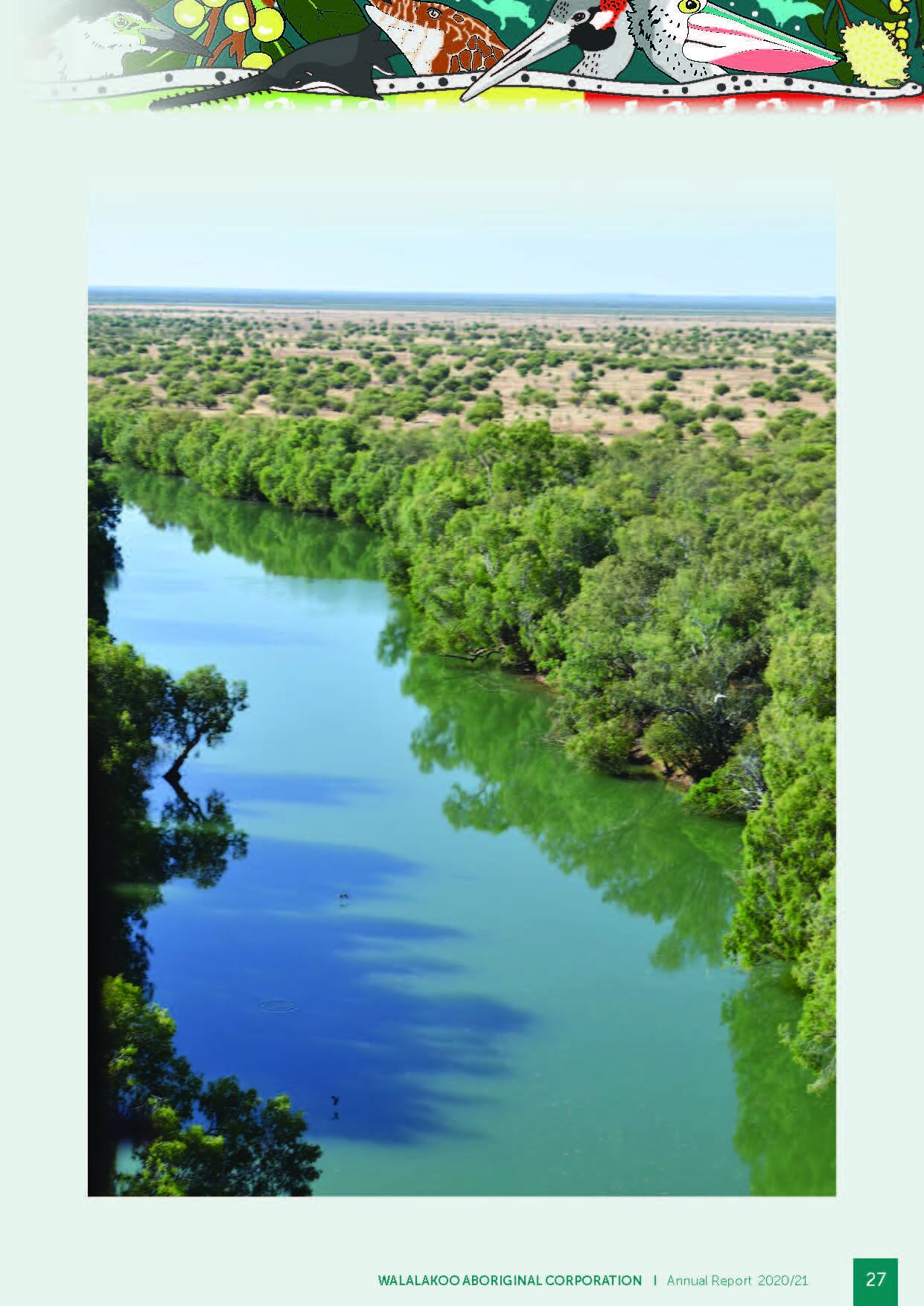
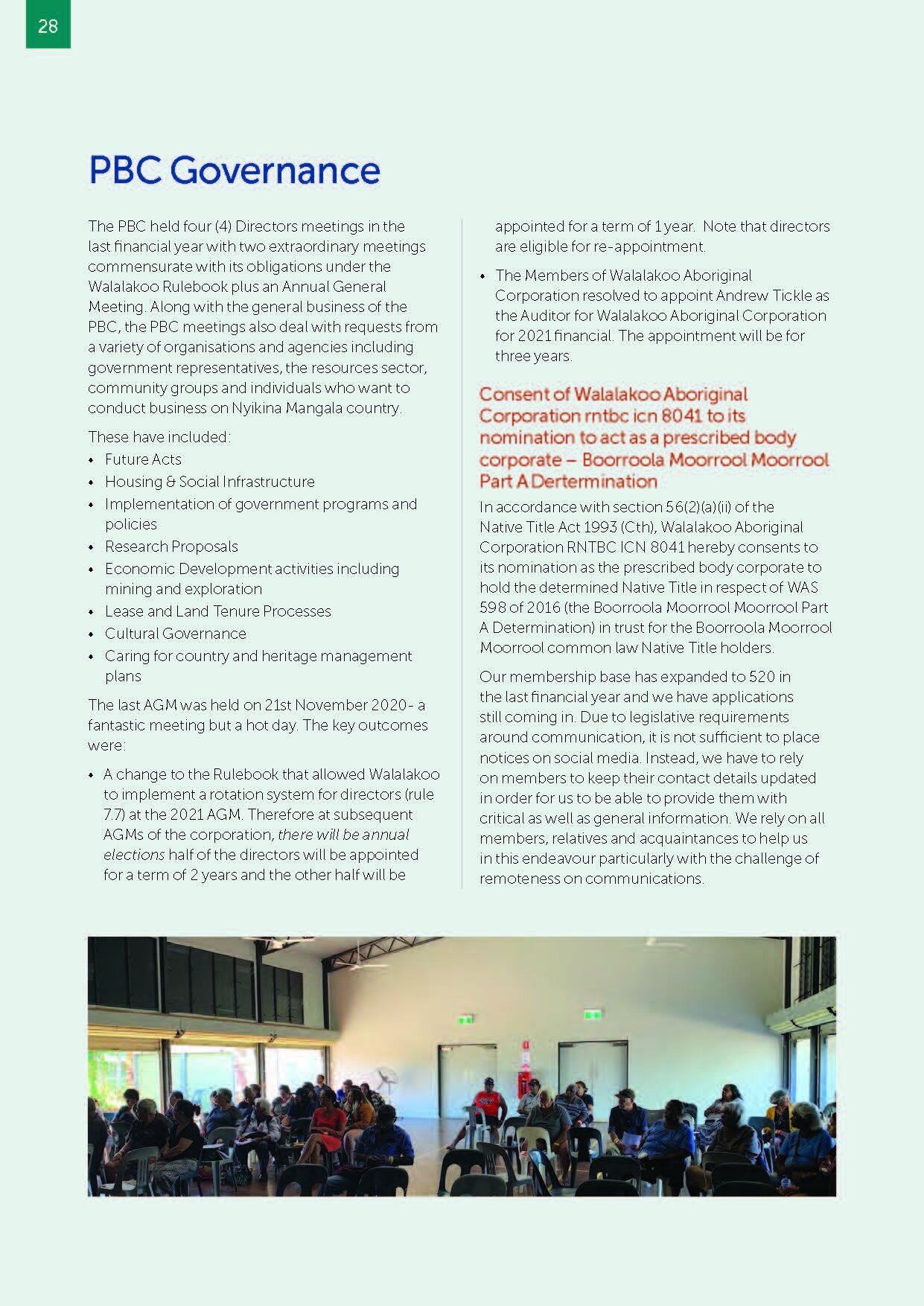
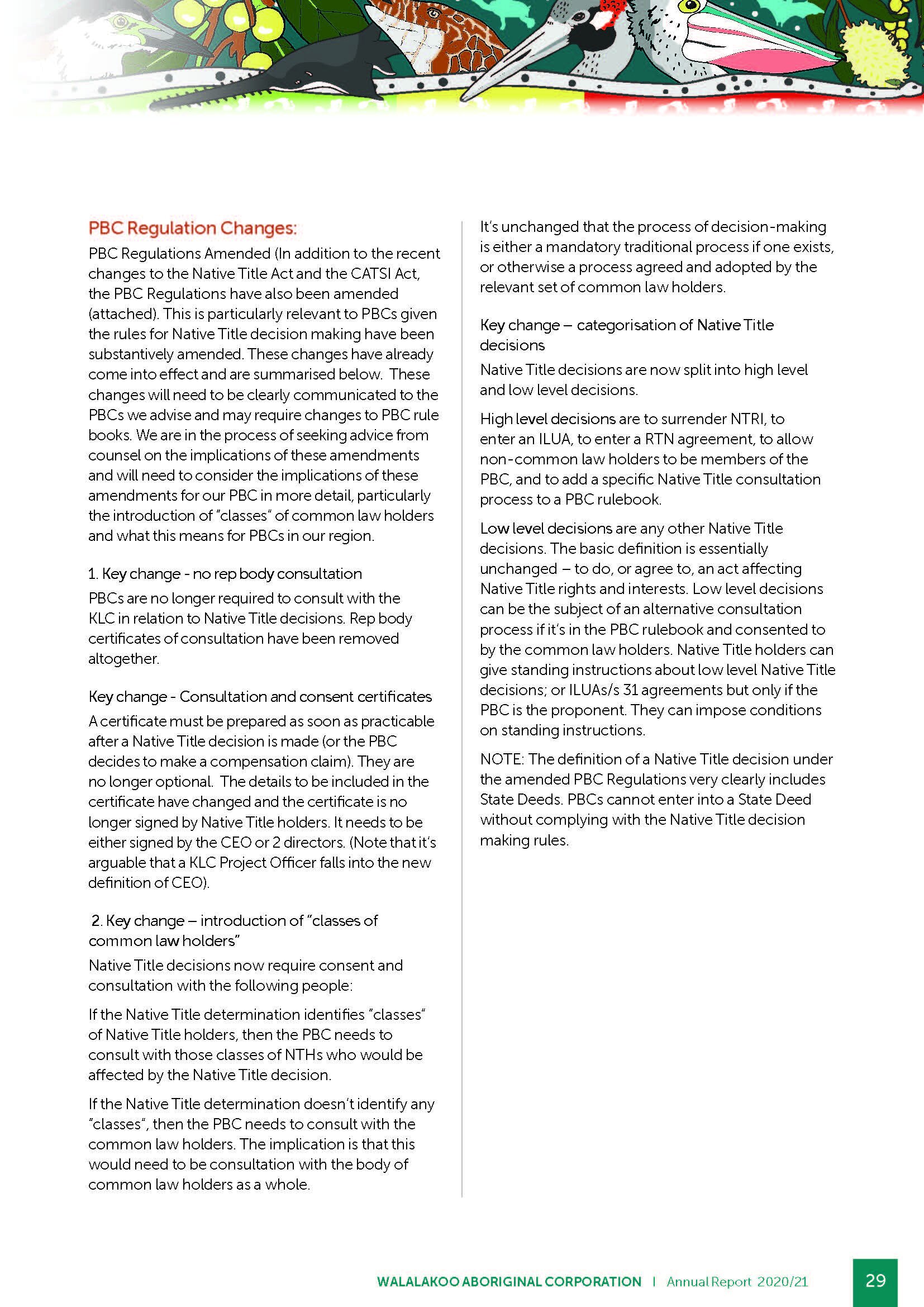

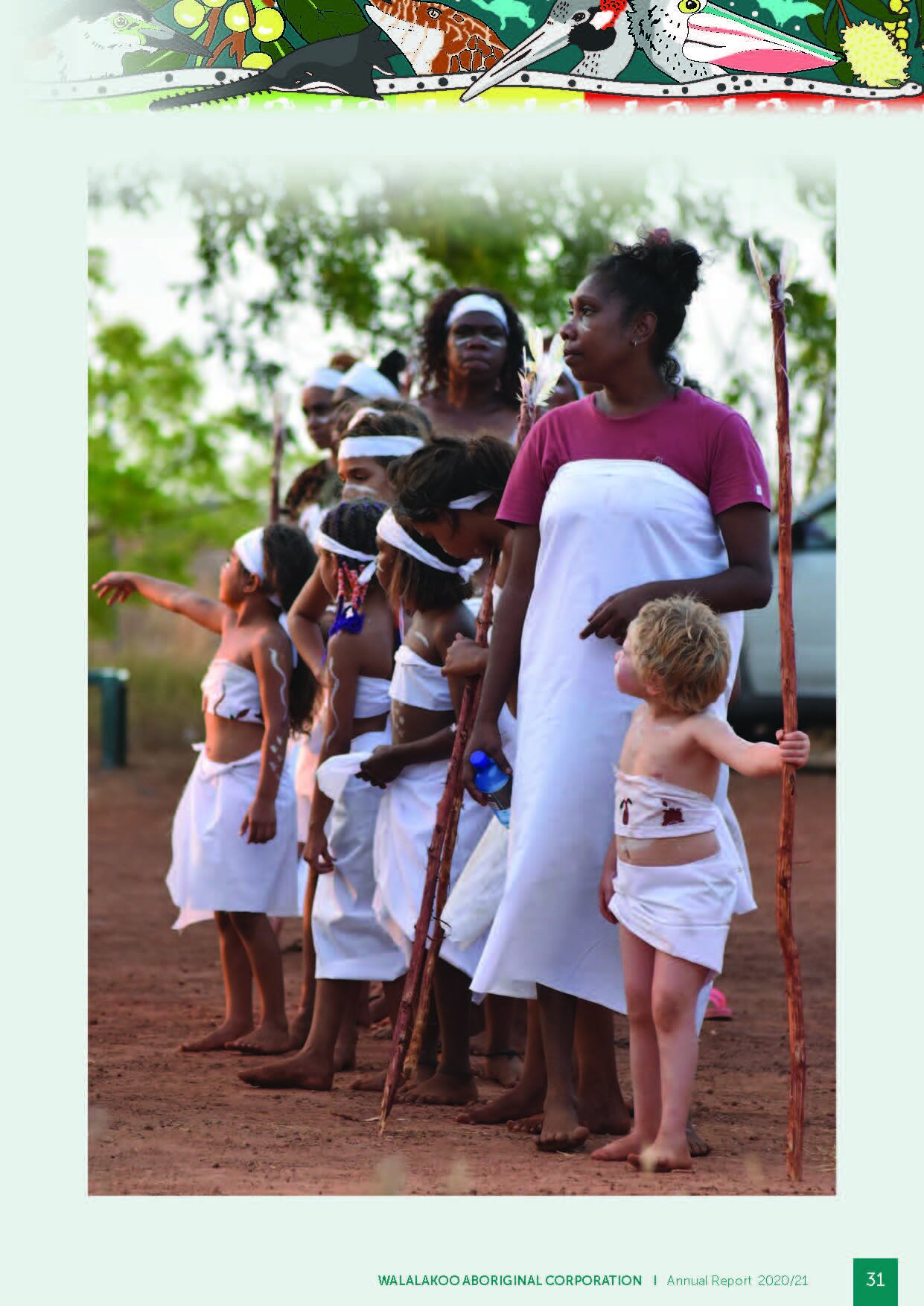
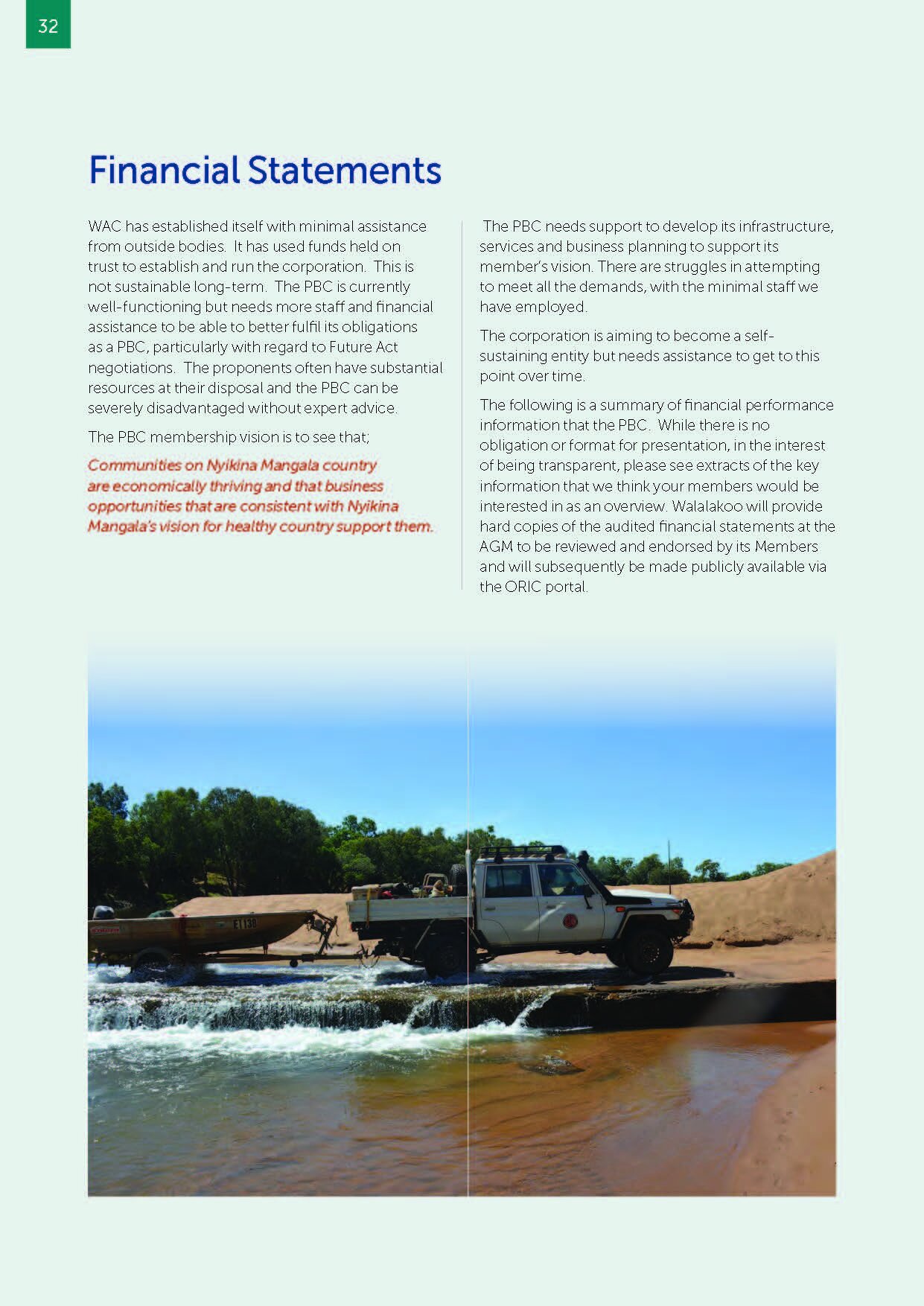
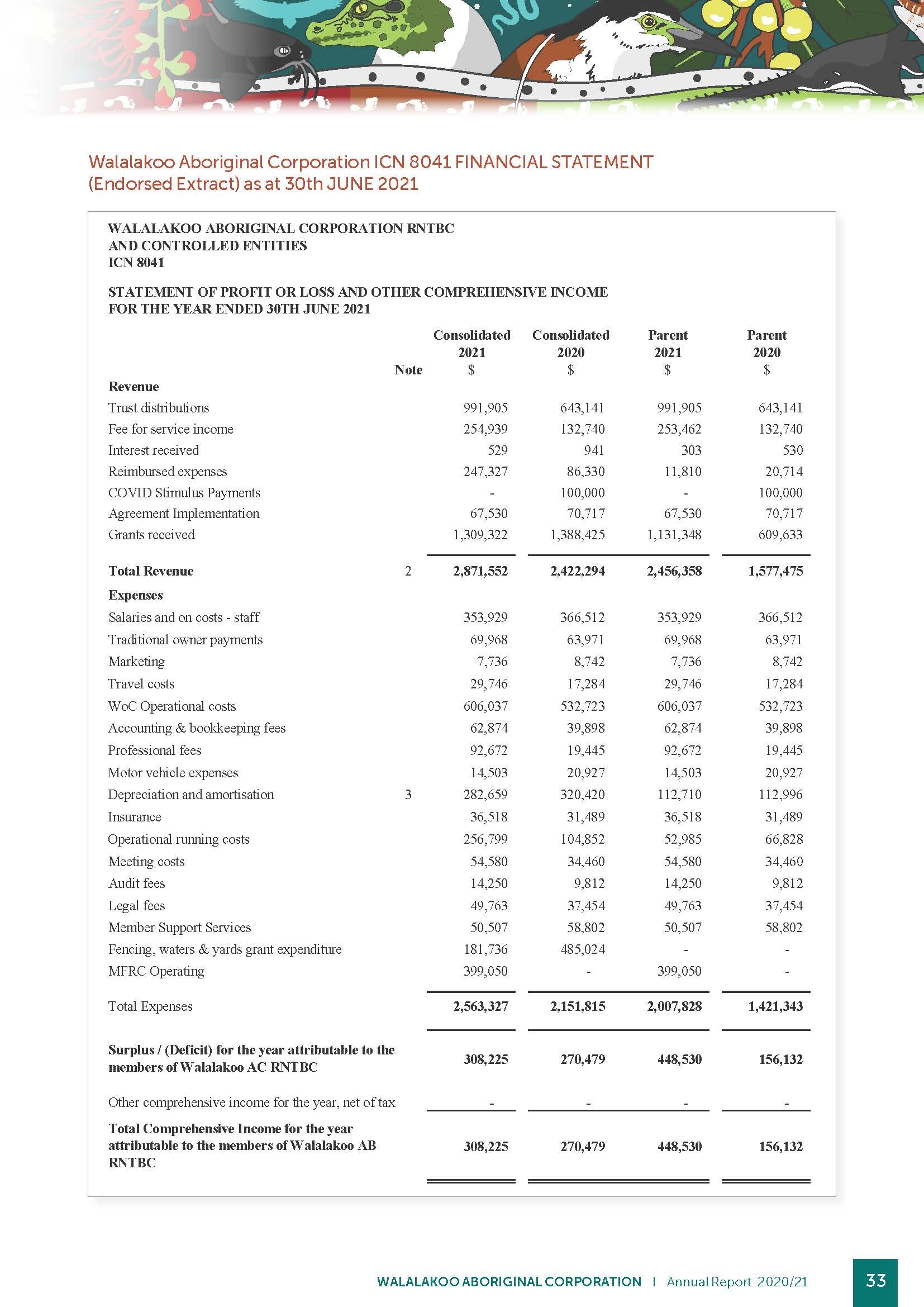
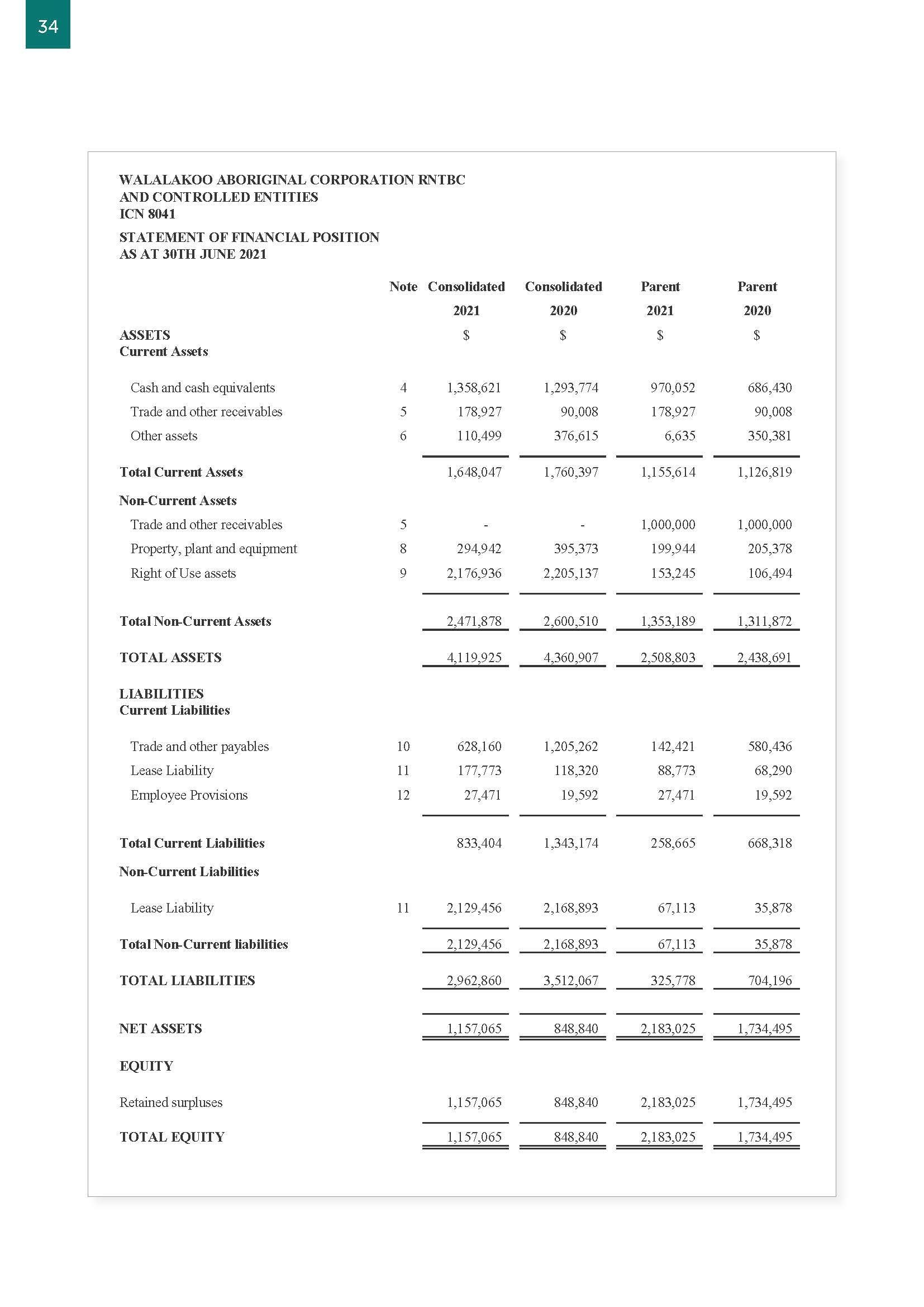
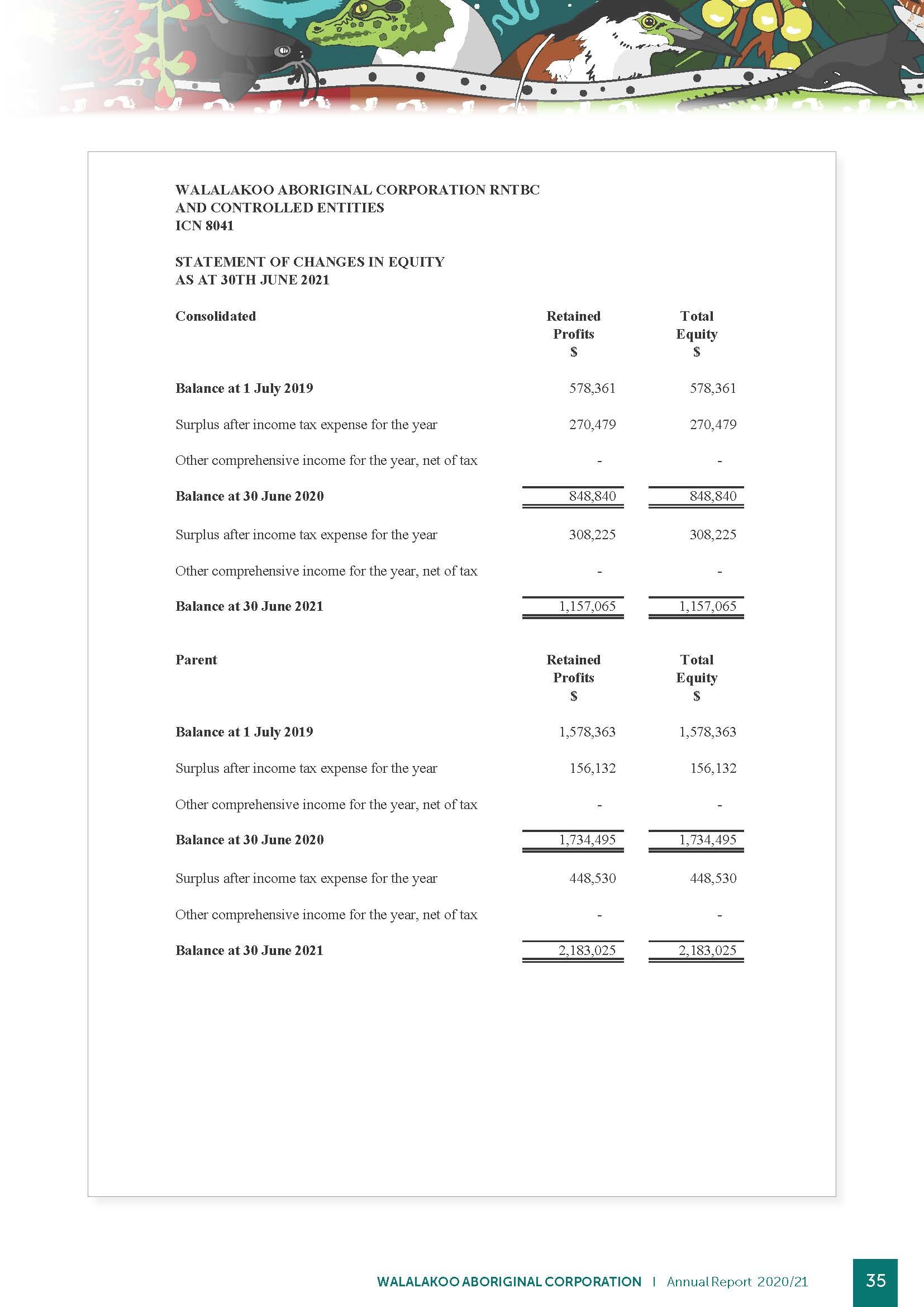
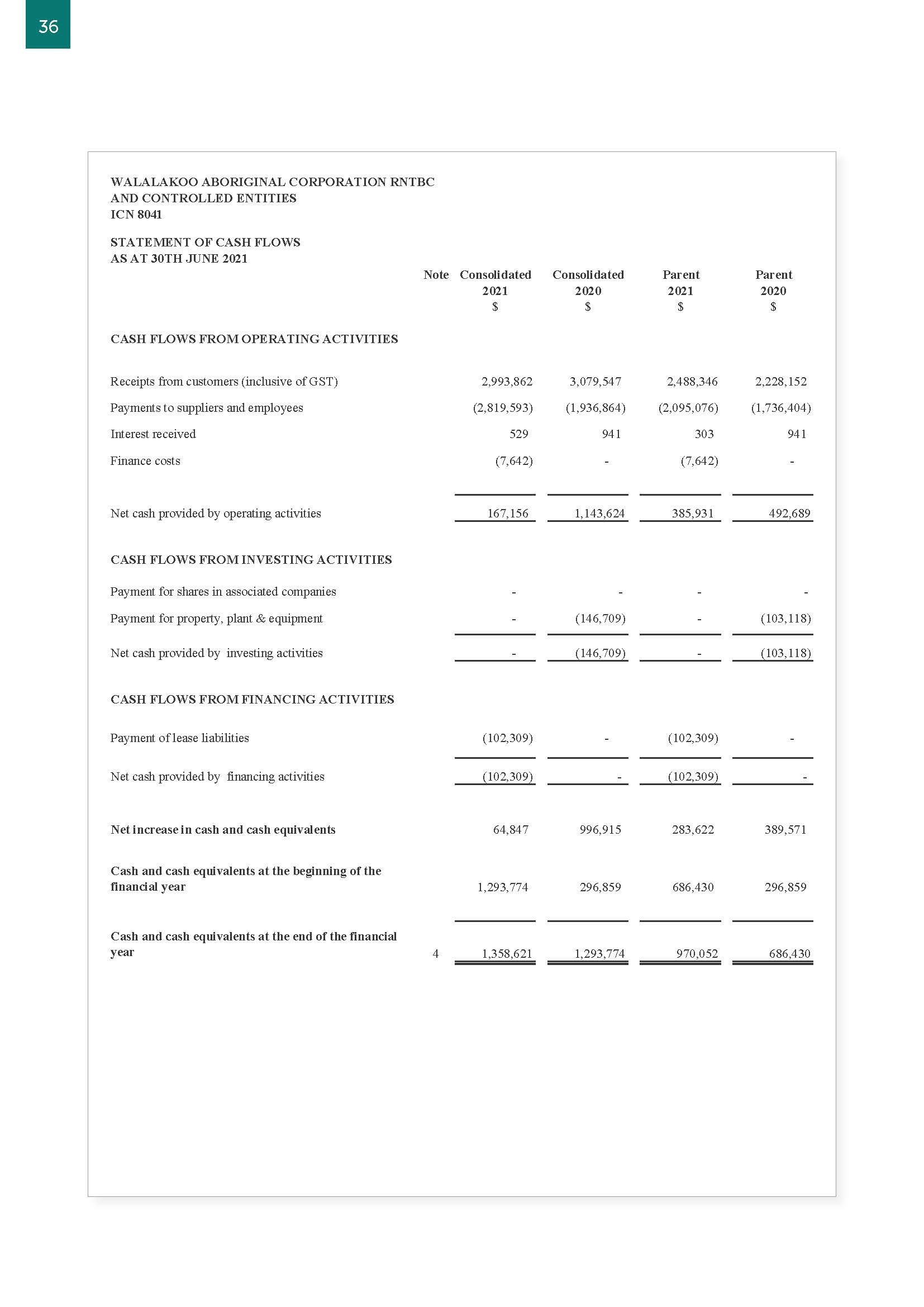

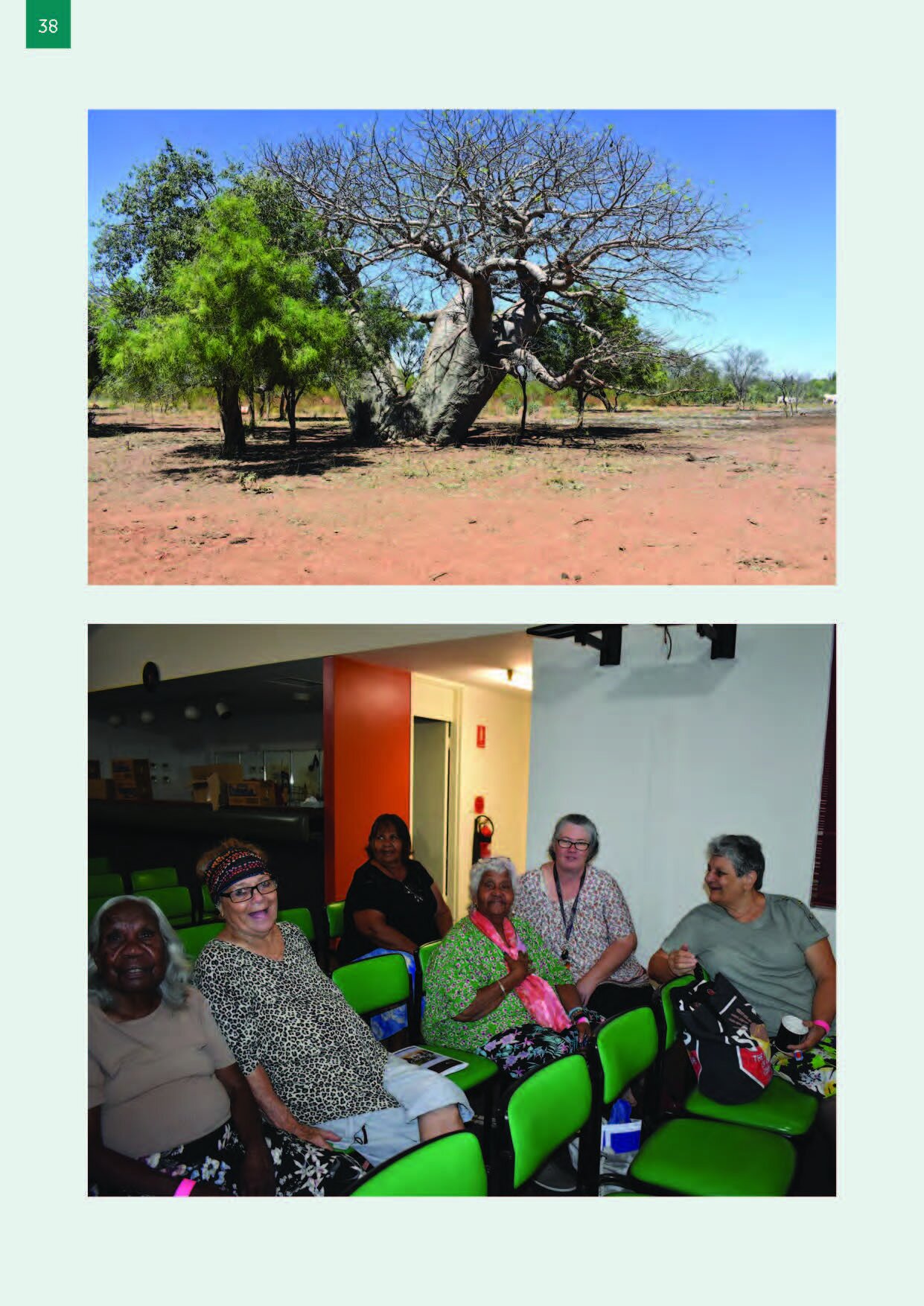
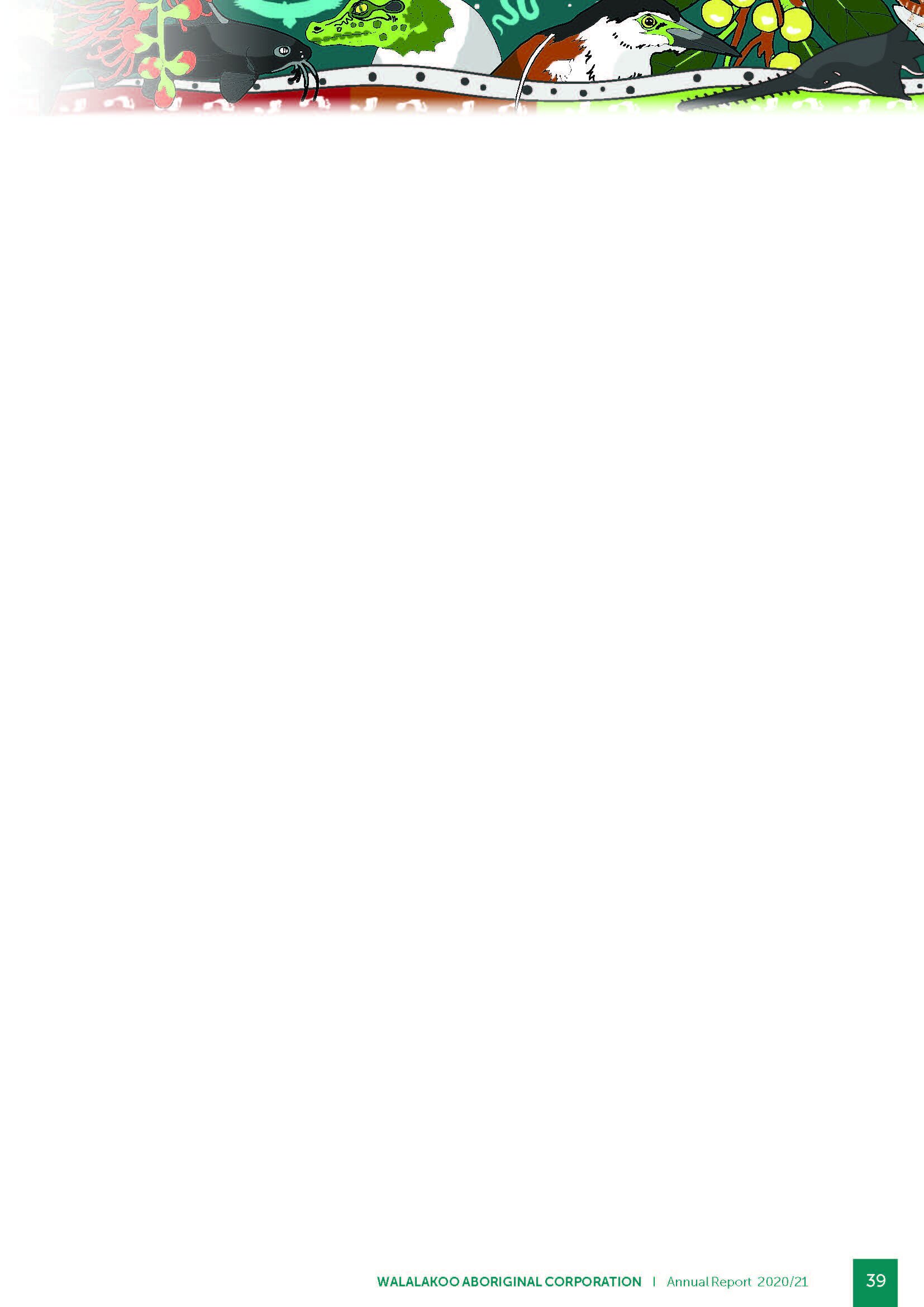
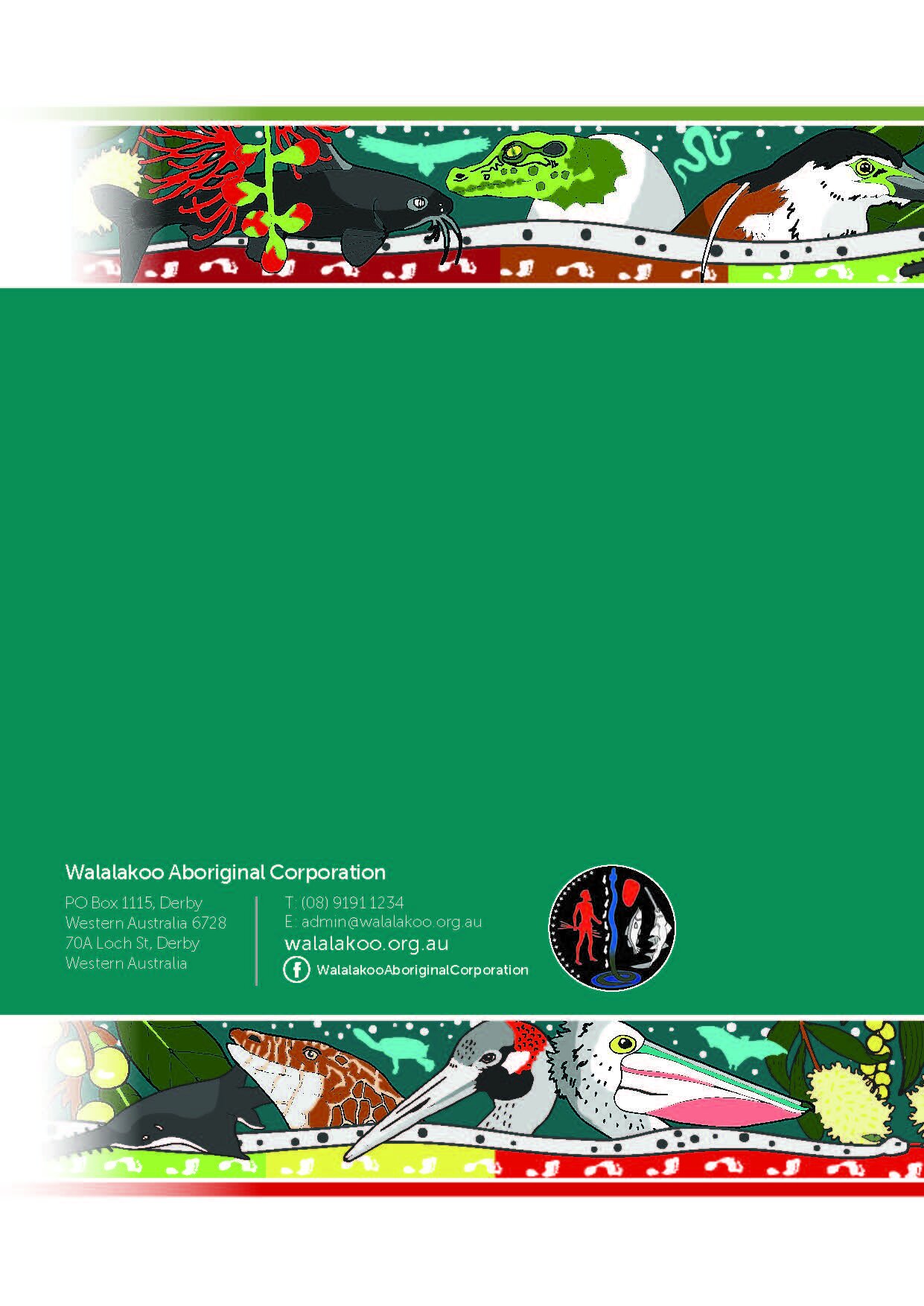
Walalakoo Aboriginal Corporation are holding their annual general meeting on November 9th at King Sound Resort in Derby. All Registered members should have received the AGM Notice and Proposed Draft Rule Book in the mail, if you wish to attend please contact us on 0891911234 or email admin@walalakoo.org.au to arrange travel.

The Nyikina Mangala people of the West Kimberley are set to benefit from an historic agreement which gives them control over one of the single biggest pastoral leases in the Kimberley.
The Indigenous Land Corporation (ILC) acquired Myroodah Station at the group’s request in 1999 for $2.34 million, with the intention of improving the property before handing it over to its traditional owners.
The process to transfer the pastoral lease to the Walalakoo Aboriginal Corporation (WAC), the native title body corporate for the Nyikina Mangala people, began in late 2014 following the determination of the group’s native title claim.
WAC Chairman, Robert Watson, said the transfer of the pastoral lease was a monumental occasion for local Aboriginal people.
“Our people have a long history with Myroodah station, with many of our ancestors being born, working and even being buried on the station,” he said.
“We are immensely proud of the hard work it’s taken to get to this point, and we are excited about the future opportunities this provides for our people.
“We believe this return of country will create significant economic, training and employment opportunities for our people, which will have flow on effects in terms of social outcomes in the future.”
Myroodah Station covers more than 402,000 hectares, with the pastoral lease now being valued at around $15 million, including property improvements to the value of $3 million.
In addition, the ILC will grant the group $657,000 in operational plant and equipment and land management funds of $1 million for the future development, protection and maintenance of Myroodah Station.
ILC Group CEO, John Maher, said the ILC’s mandate is to support Aboriginal and Torres Strait Islander people to acquire land and manage their lands for economic, social, cultural and environmental benefits.
“The transfer of Myroodah is an excellent example of the ILC working with Aboriginal people to unlock the potential of Indigenous-held land across the country, otherwise known as the Indigenous Estate,” he said.
“As well as economic benefits, an environmental management plan has been developed for the property in partnership with the Nyikina Mangala rangers which will ensure cultural and environmental assets are protected.”
WAC plans to sub-lease the pastoral lease to Indigenous cattle management company, Kimberley Agriculture Pastoral Company (KAPCO), which will be responsible for running around 17,000 head of cattle on the property.

“Ask not what your country can do for you – ask what you can do for your country.”
There’s talk that John F. Kennedy pinched this powerful line from an old headmaster. Whether or not this is the case, the sentiment, simply taken, remains relevant today.
Kennedy was challenging society to contribute to improving the public good.
It’s a sentiment that has also guided the work and study of Nyikina Mangala man Charles Prouse.
In 2017, with the assistance of a scholarship from The Roberta Sykes Indigenous Education Foundation and a scholarship from Walalakoo Aboriginal Corporation, Charles travelled to the US to study for a Master in Public Administration at Harvard’s esteemed Kennedy School.
He first encountered the course while participating in the Aurora Indigenous Scholars International Study Tour. The tour enabled him to talk with students and teachers to gain insight into potential post-graduate study opportunities.
The Master in Public Administration was the one opportunity that really stood out, but when it came to admission to the sought-after course, there was no special treatment. In addition to working full-time, Charles studied for eight months to sit the GMAT entry exams.
The questions are hard. Take this one, not in use anymore, from an old exam:
Is the average (arithmetic mean) of x and y greater than 20?
The average (arithmetic mean) of 2x and 2y is 48.
x = 3y
Statement (1) ALONE is sufficient, but statement (2) alone is not sufficient
Statement (2) ALONE is sufficient, but statement (1) alone is not sufficient
Both statements TOGETHER are sufficient, but NEITHER statement ALONE is sufficient
EACH statement ALONE is sufficient
Statements (1) and (2) TOGETHER are NOT sufficient
On top of this, the course’s alumni are highly distinguished: presidents, prime ministers, journalists, Nobel laureates and army majors. The former Secretary General of the United Nations Ban Ki Moon graduated from the course, as did Pierre Elliott Trudeau, former Prime Minister of Canada and father to current Prime Minister Justin Trudeau.
But Charles’ marks, combined with an impressive CV that includes positions as CEO of Supply Nation and CEO at National Aboriginal Sporting Chance Academy, saw him over the line. When he found out he’d been admitted, his first reaction was terror.
“I didn’t believe it. I really didn’t believe it,” Charles said.
His hard work had paid off, and soon, Charles was in the US studying entrepreneurial finance, learning from his peers and attending extra-curricular events like social enterprise conferences.
Among some of the subjects studied were Strategic Management for Public Purposes, Global Governance and one of his favourite classes was Black Business Leaders and Entrepreneurship at the Harvard Business School. Charles also served as a representative on the Kennedy School Student Government (https://www.hks.harvard.edu/more/student-life/student-government), helping to organise student seminars and the end of year party. All of this was part of forming a network of friends from more than 200 people in his course from around the world.
Over the 12 months Charles also considered ways Aboriginal people can participate in the 21stCentury economy.
“We have land through our native title but no capital. Aboriginal people need to be guiding development of Northern Australia, we need to be making this a reality. Should we have a sovereign wealth fund in the billions, we could build infrastructure—such as roads, ports, airports, community stores—and then charge fees to both the private and public sector for using the infrastructure on our land. That way Aboriginal people aren’t just getting one-off payments. We’re setting up a system for the future and realising business opportunities within an Aboriginal context,” Charles said.
It was a transformative experience. Charles was grateful for the exposure to big ideas, the frank conversations, and to the people who said, ‘I will help you … by telling you all the mistakes I’ve made.’
He’s been left with an overwhelming sense of the possibilities and impactful projects underway worldwide—and a feeling that he’s now even better-equipped to make a positive difference to the lives of Indigenous people here in Australia.